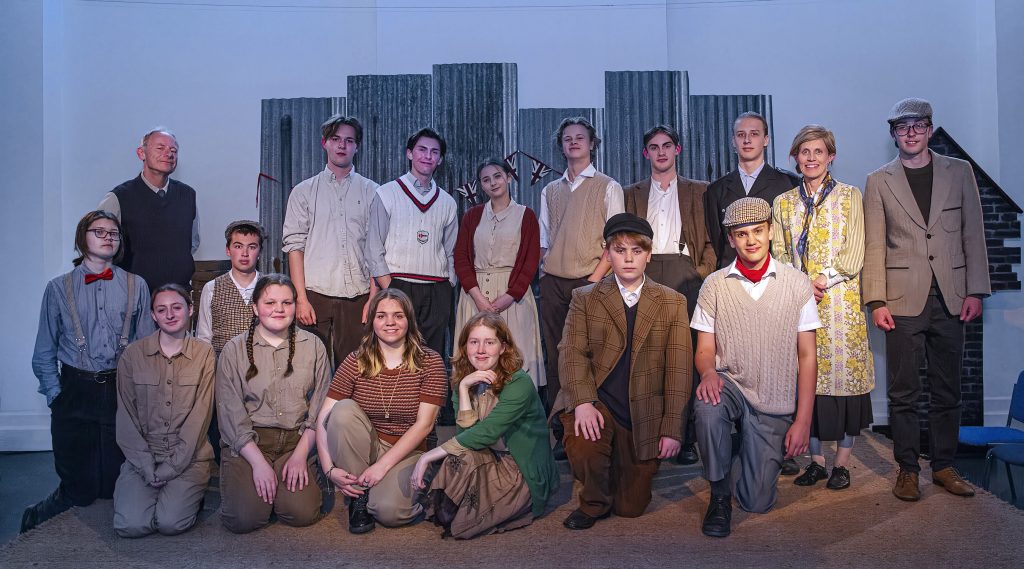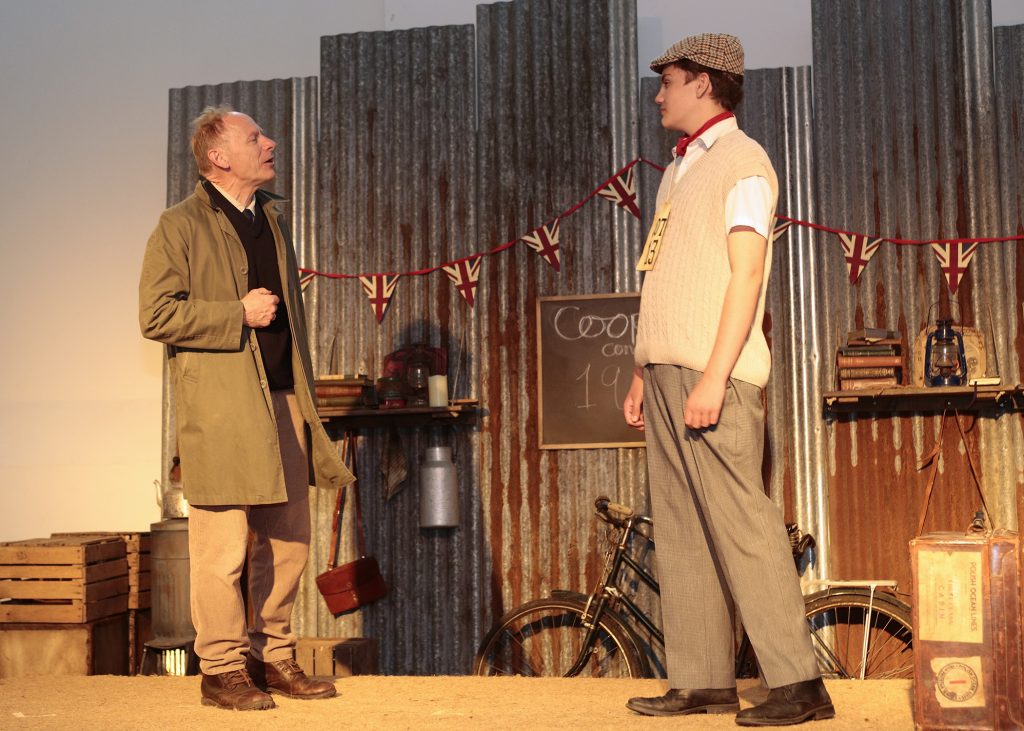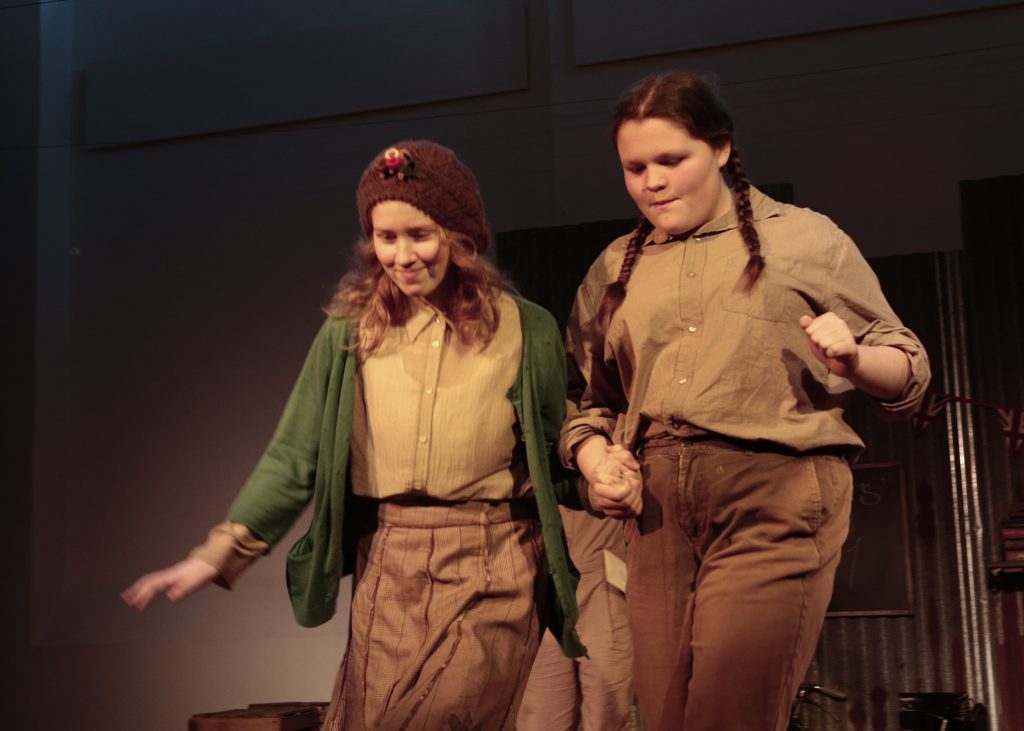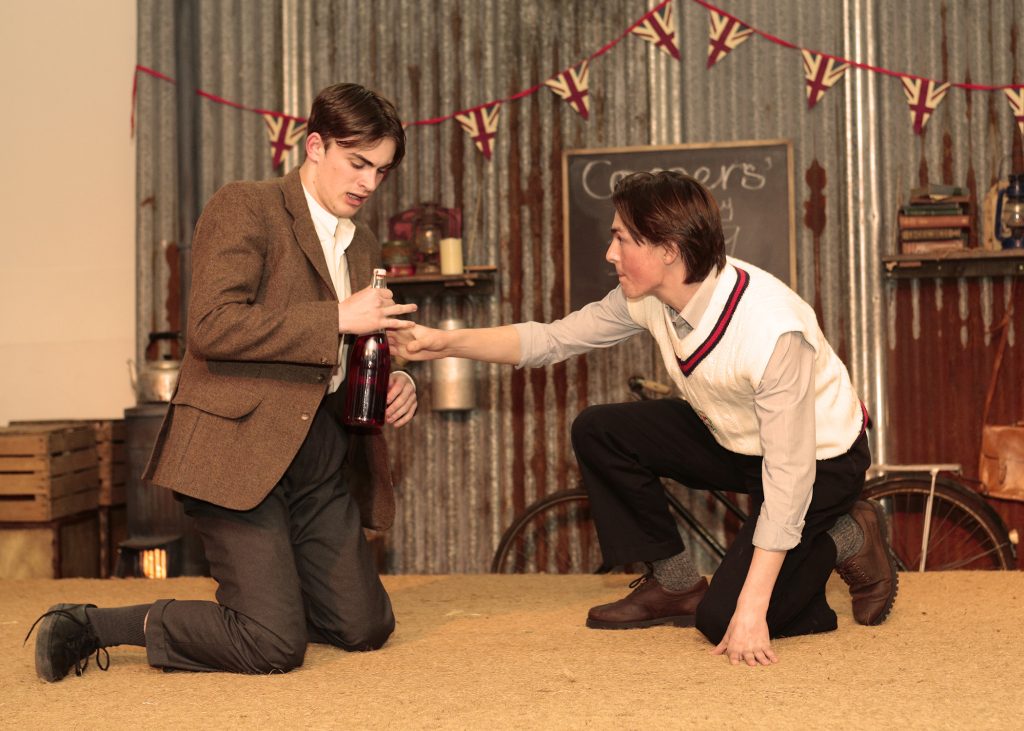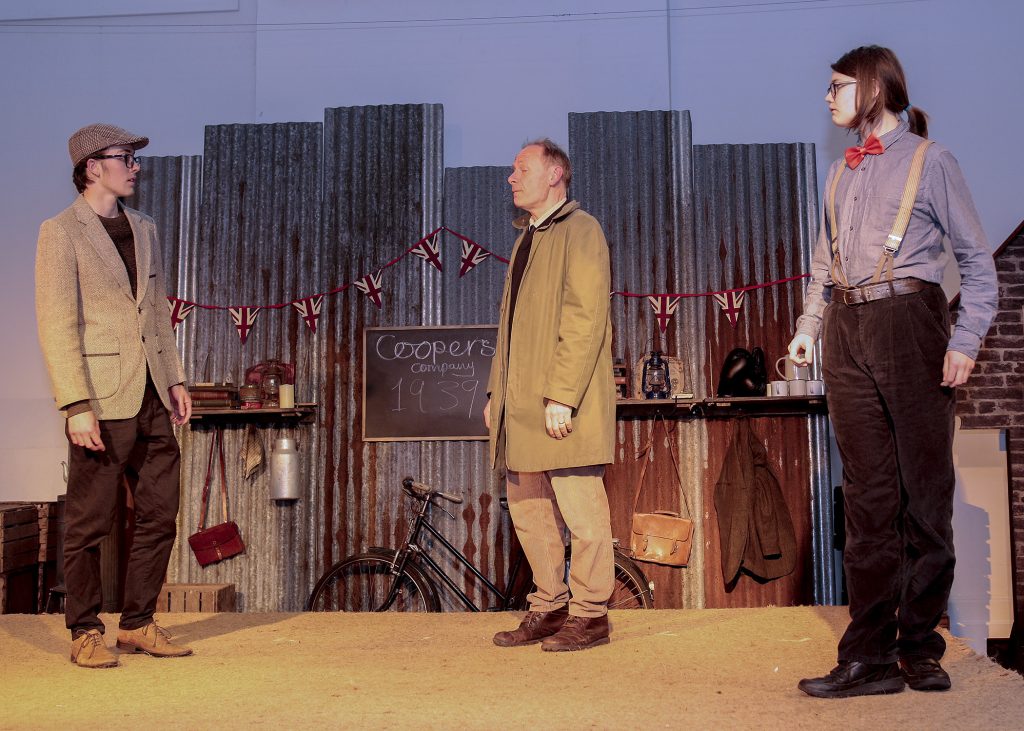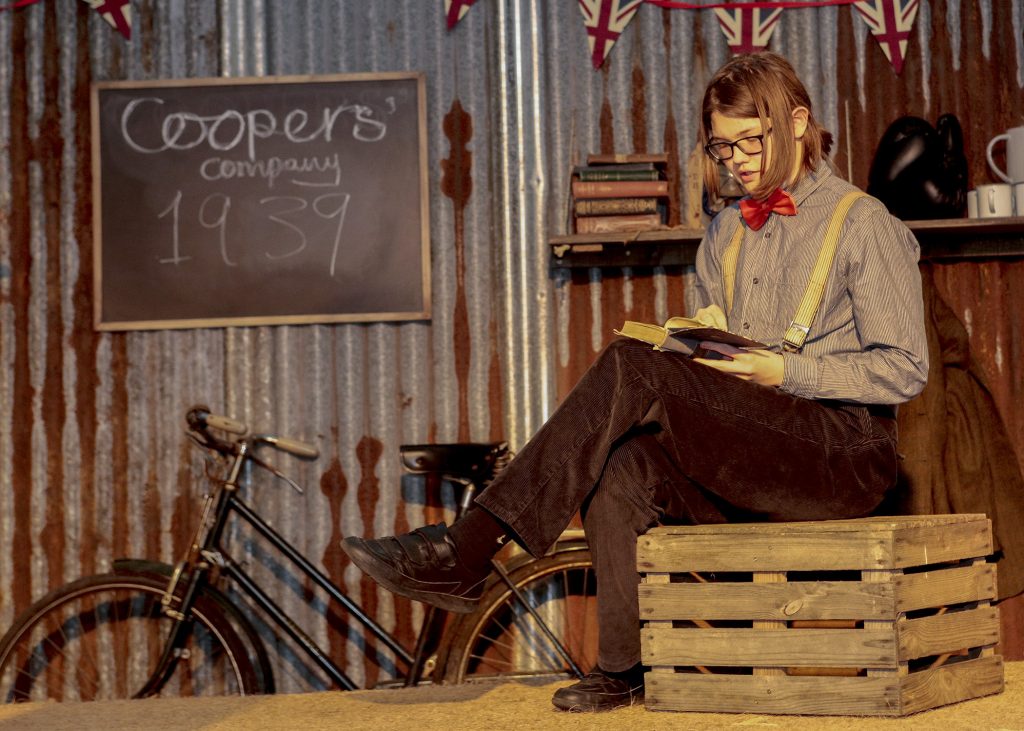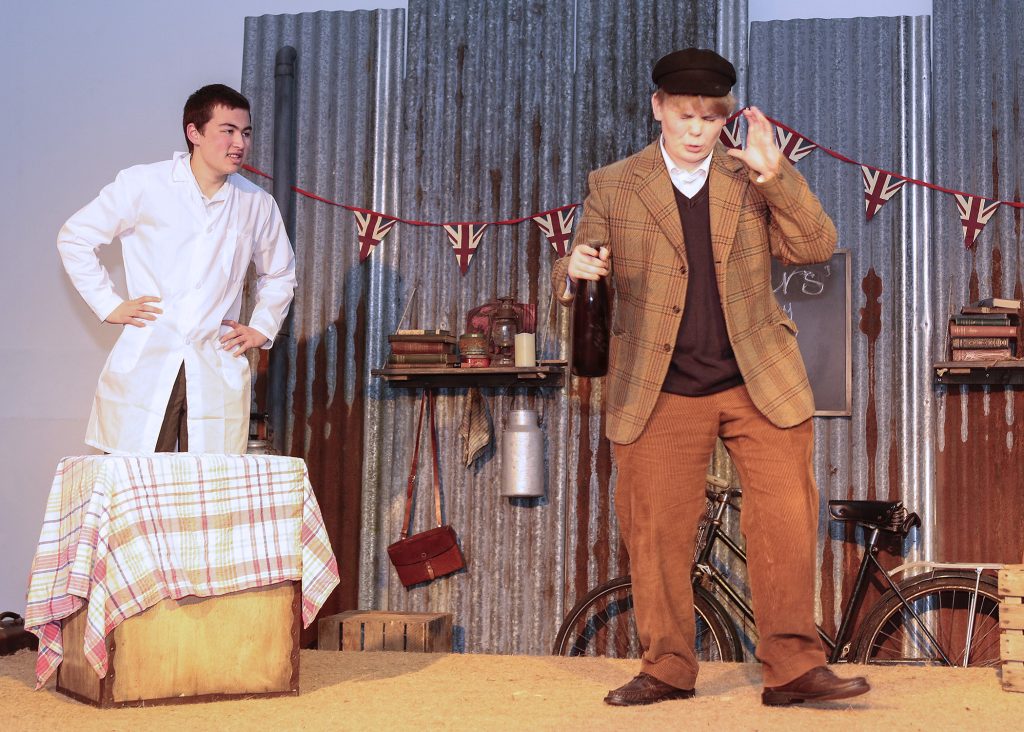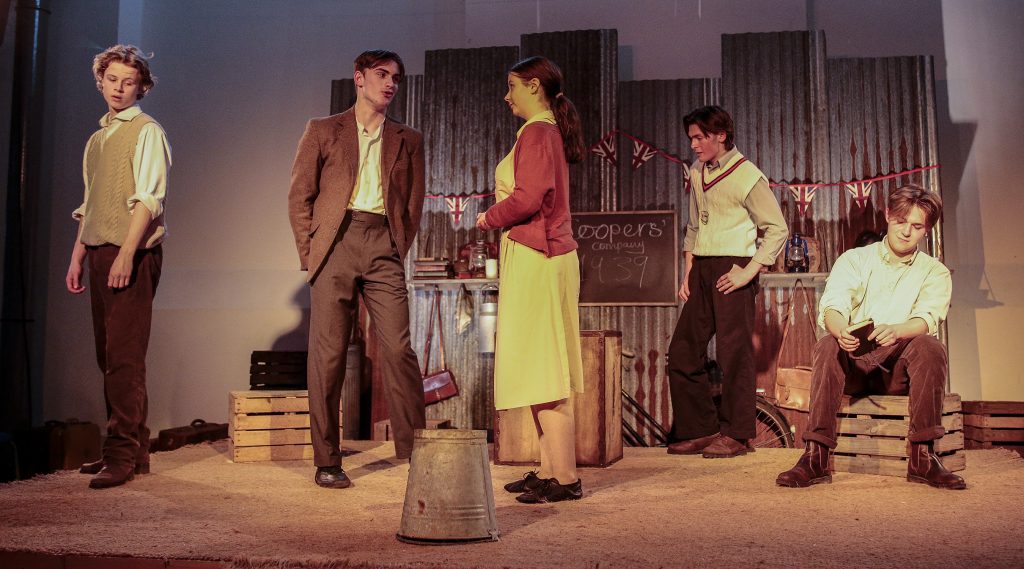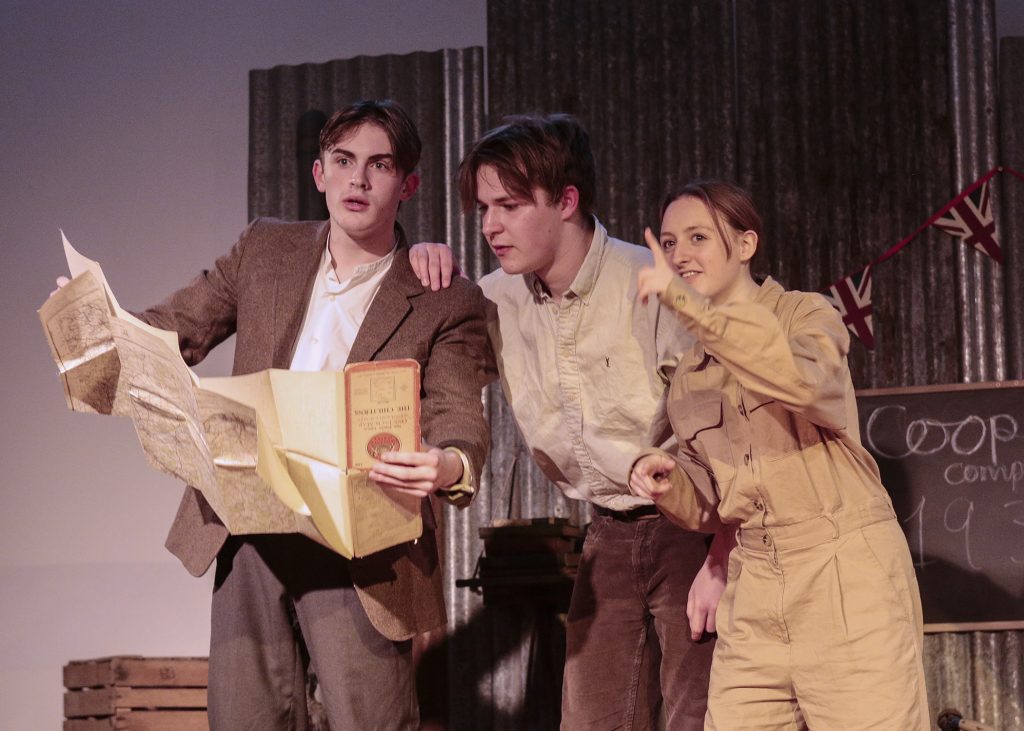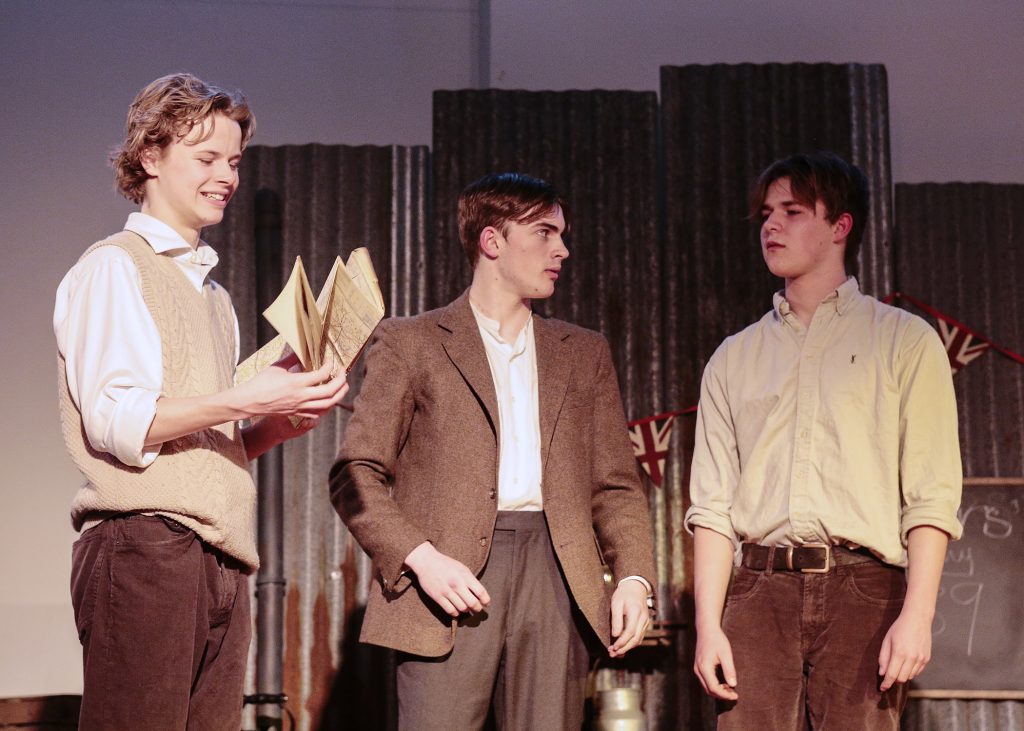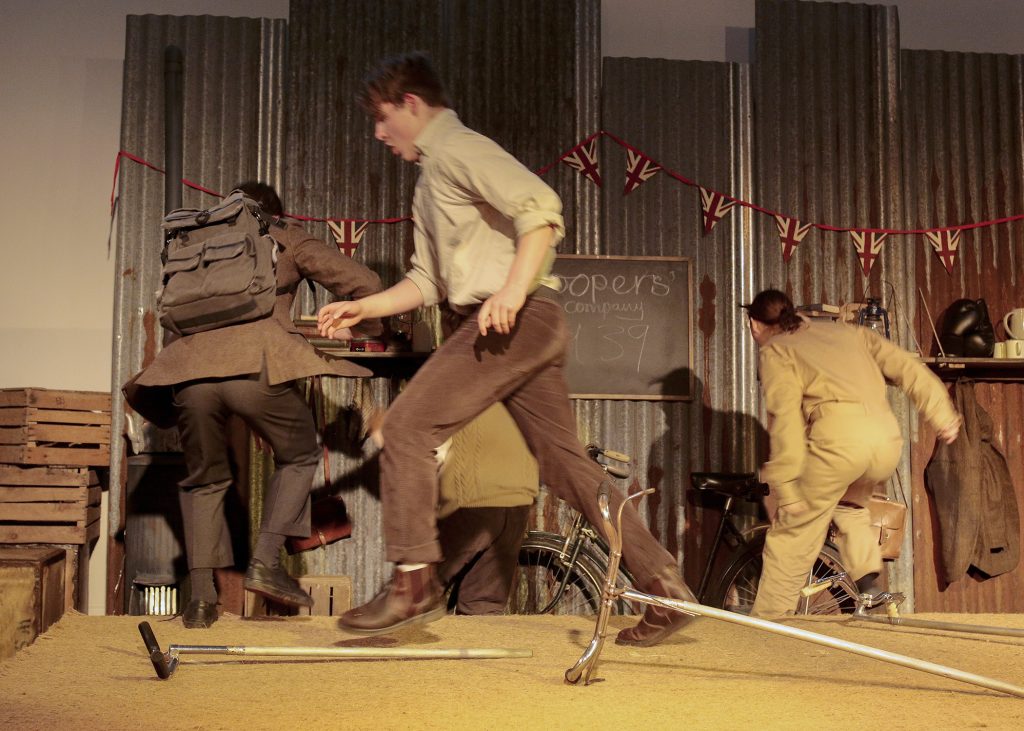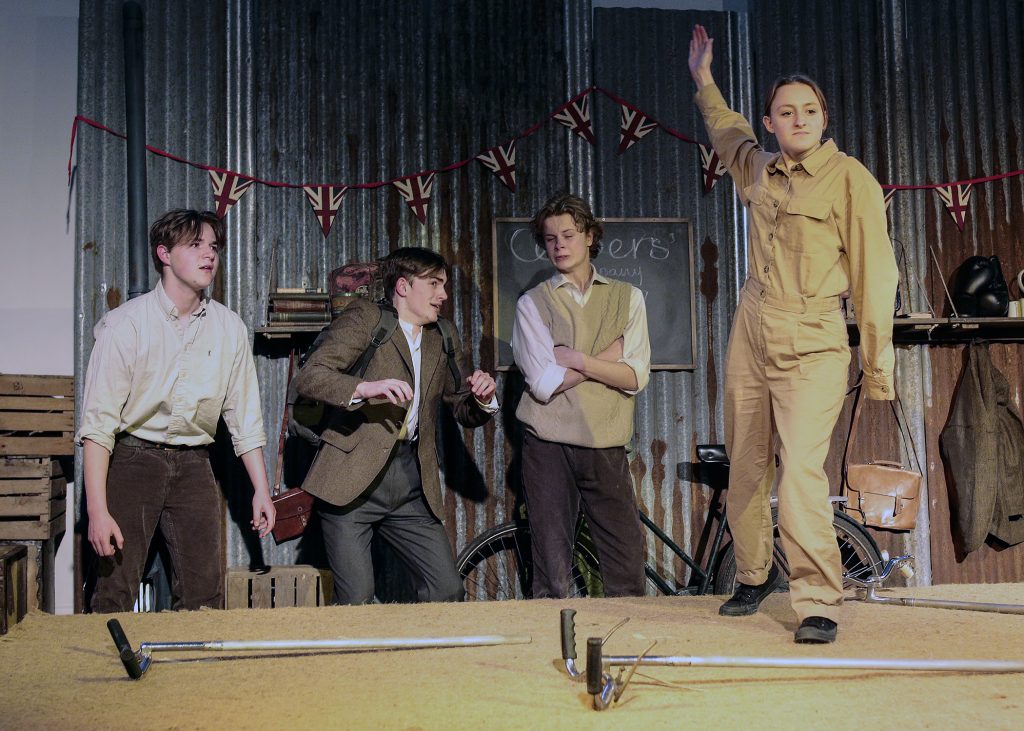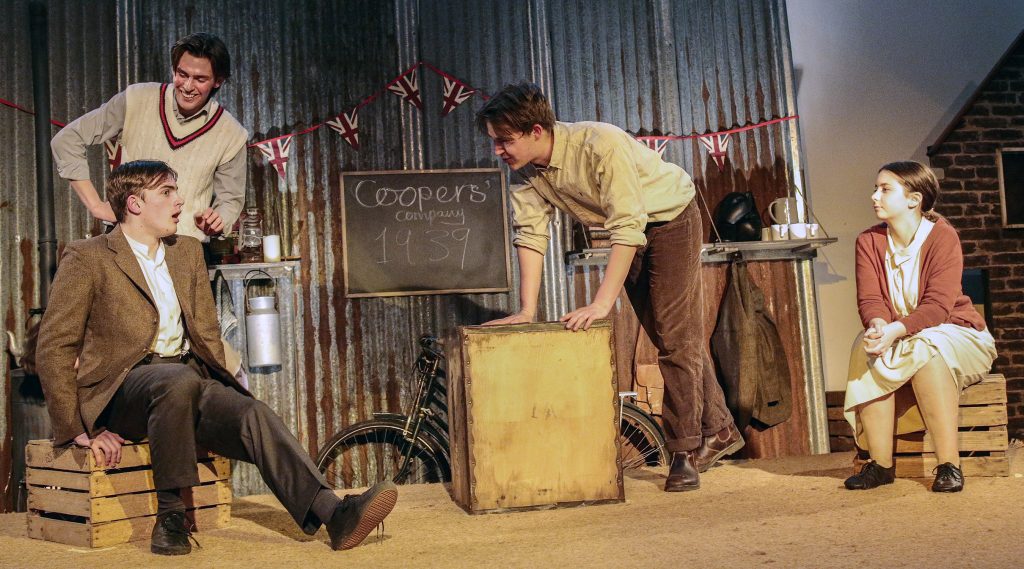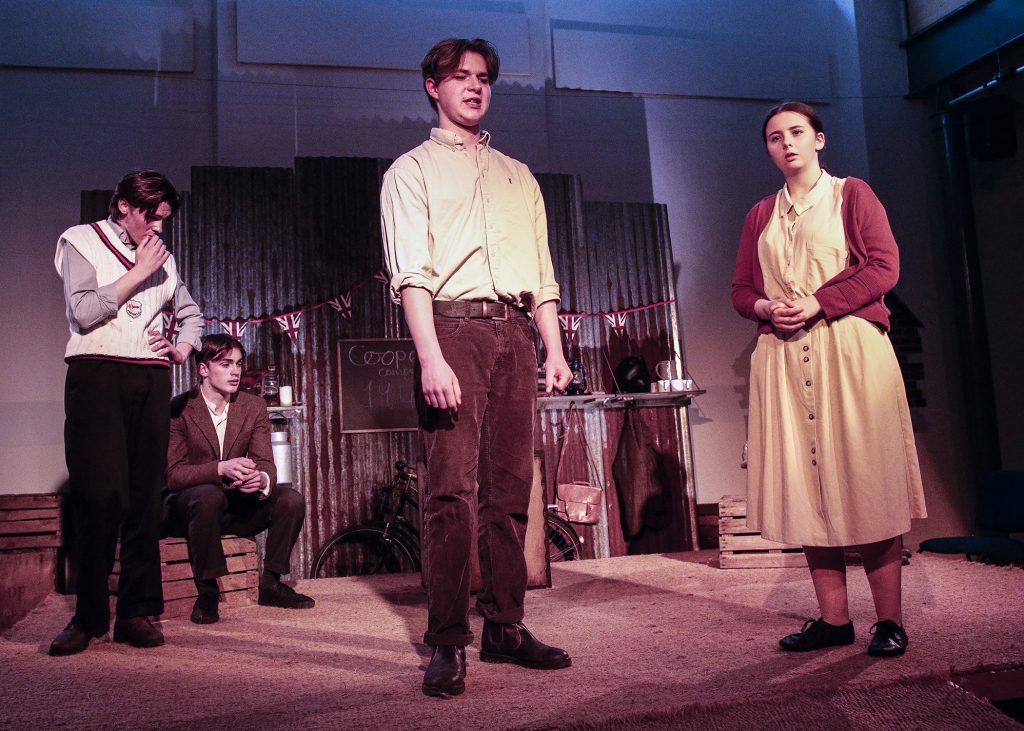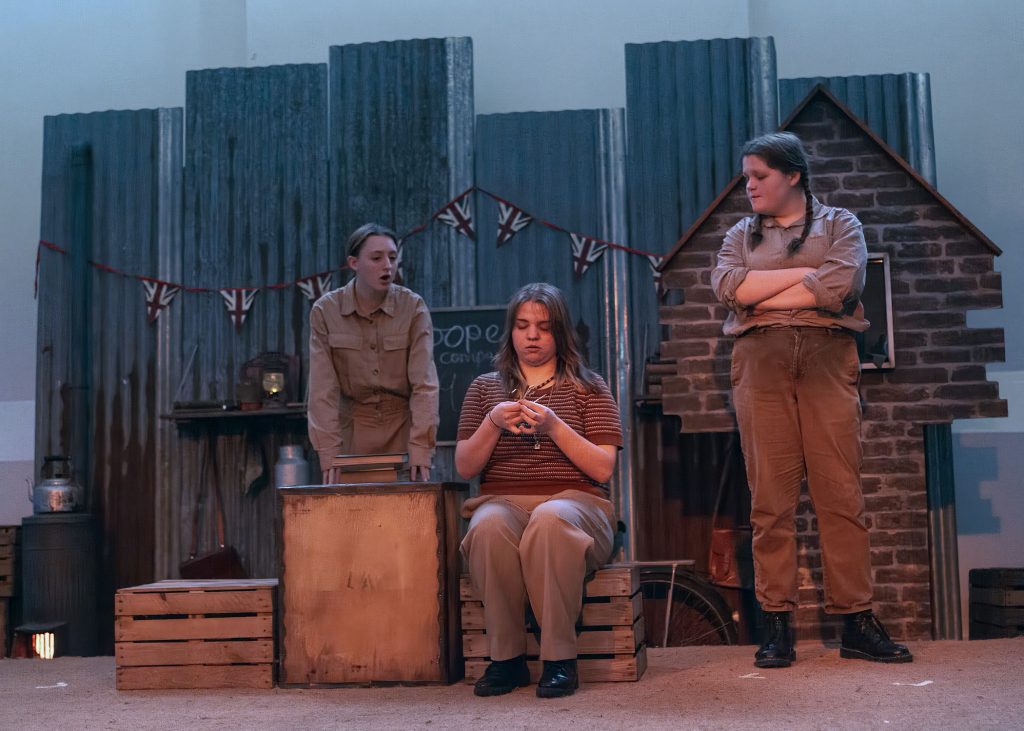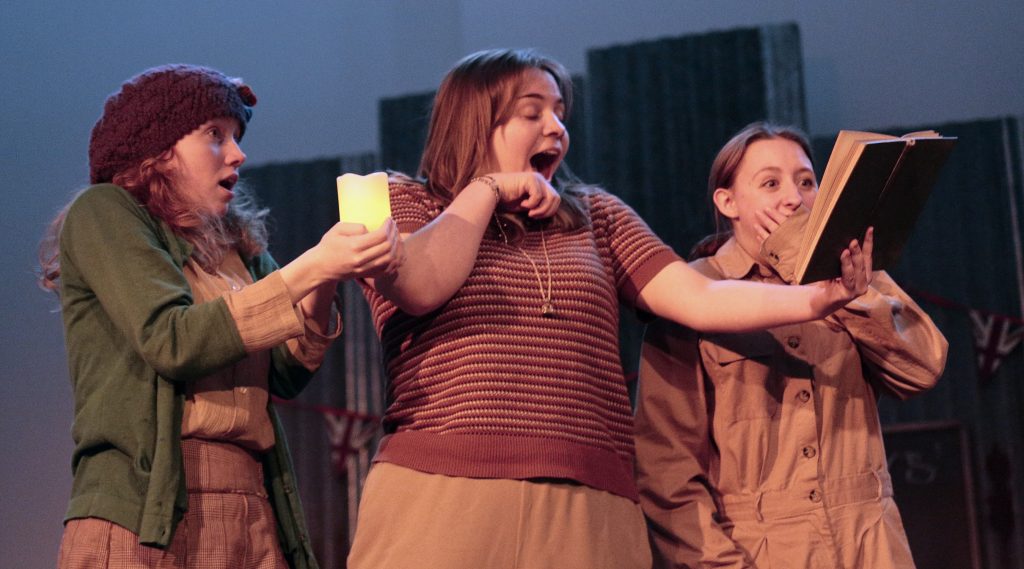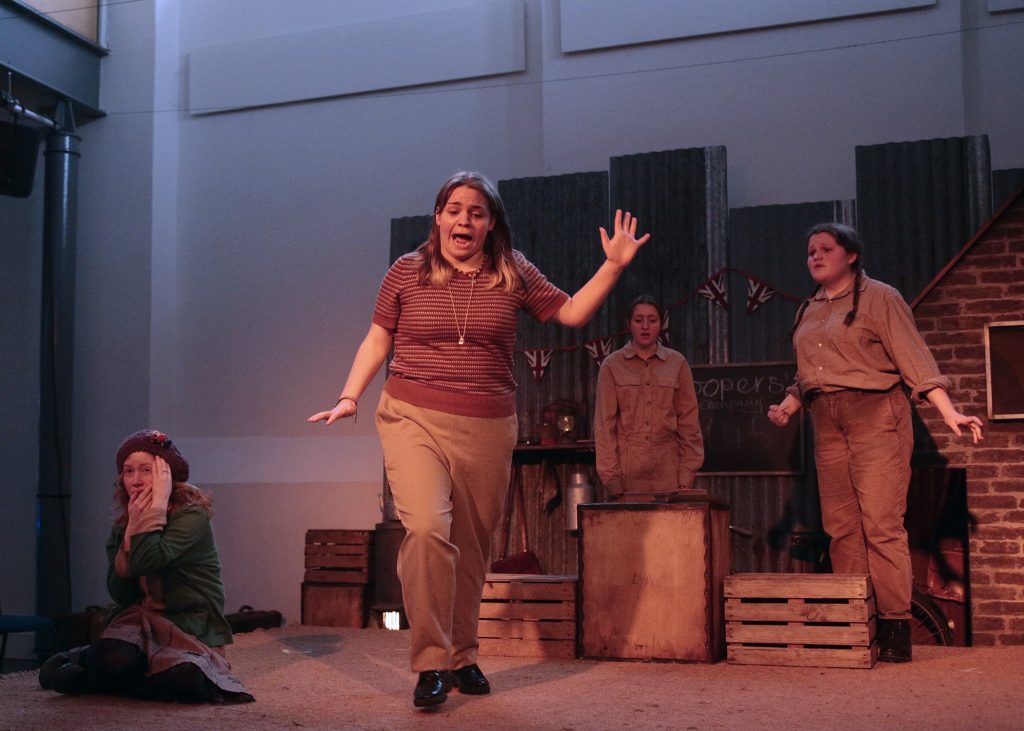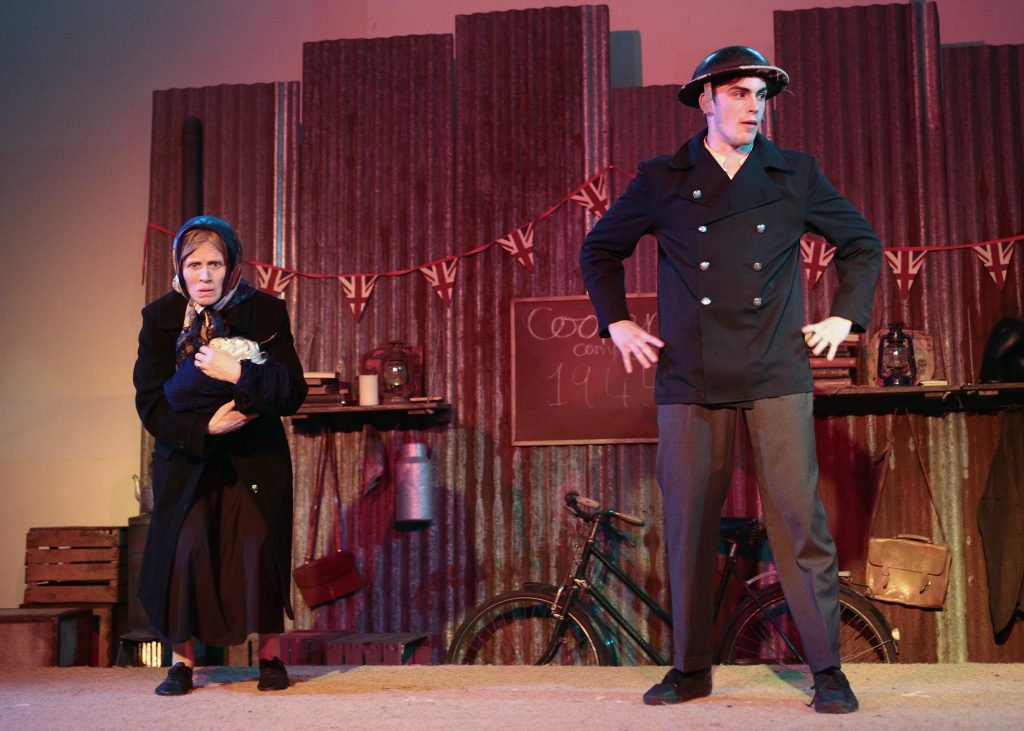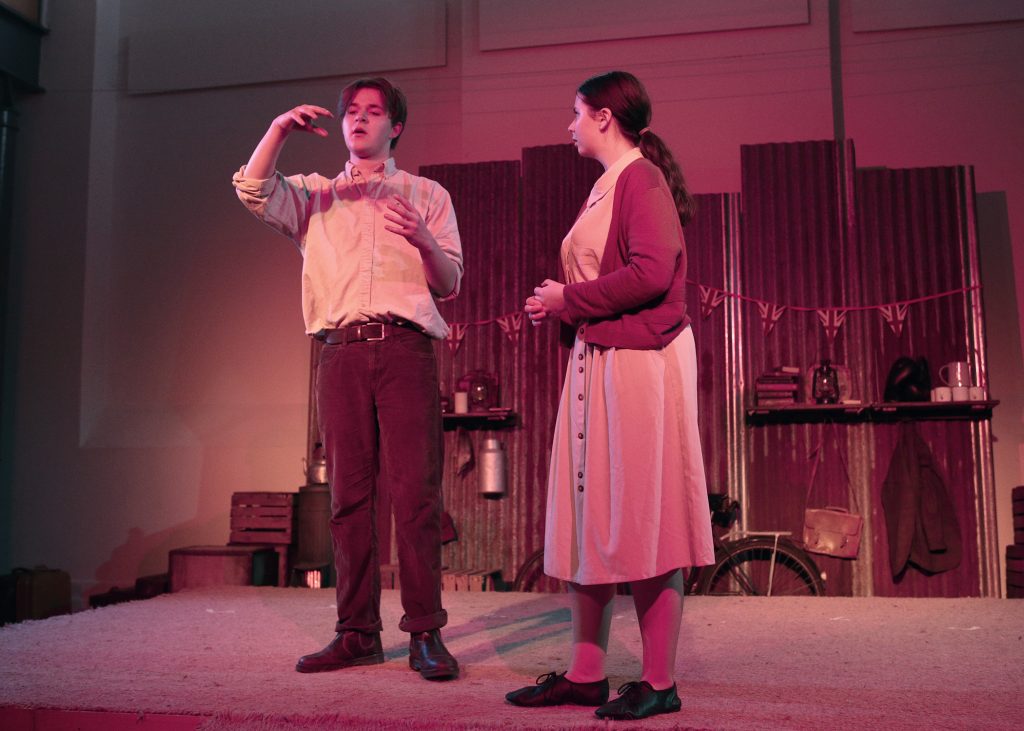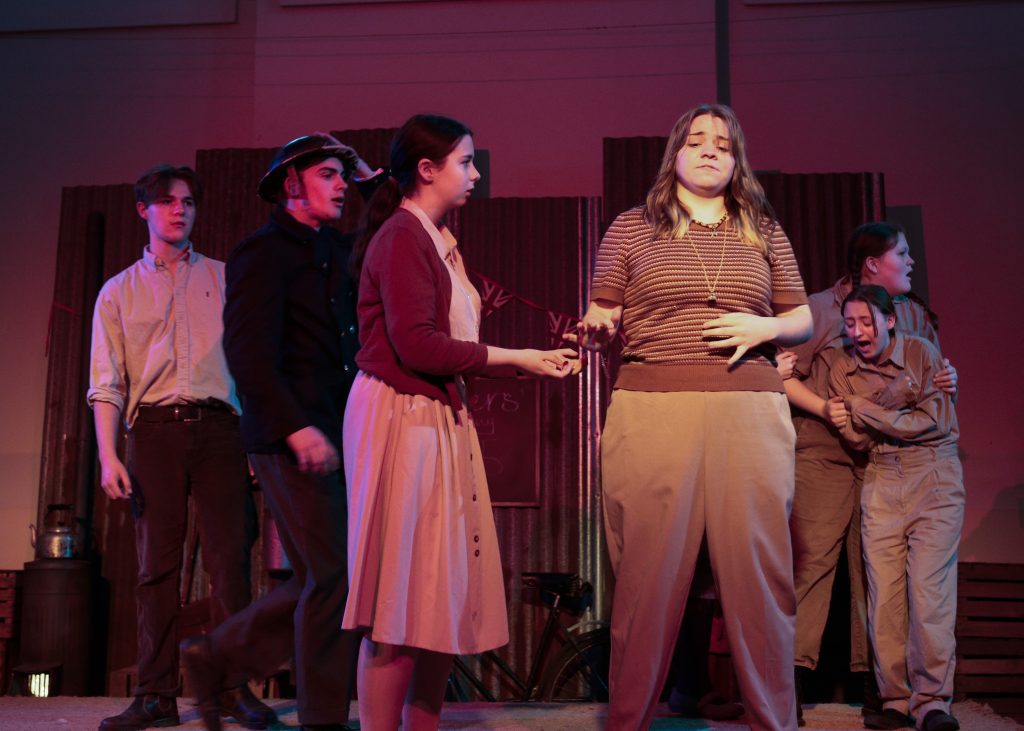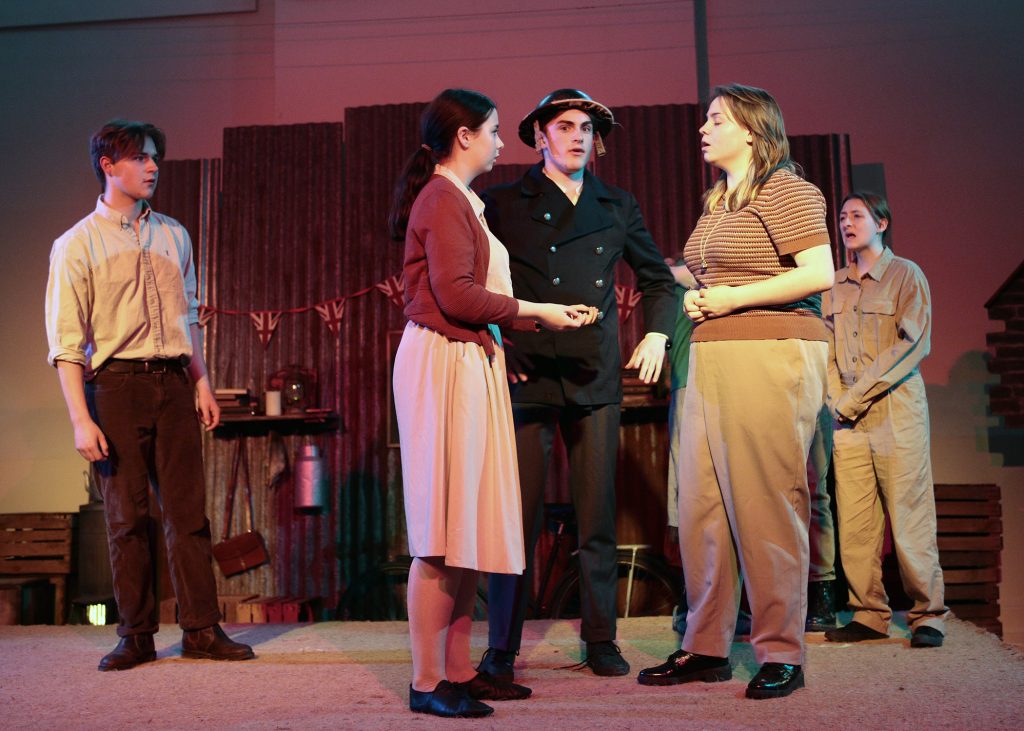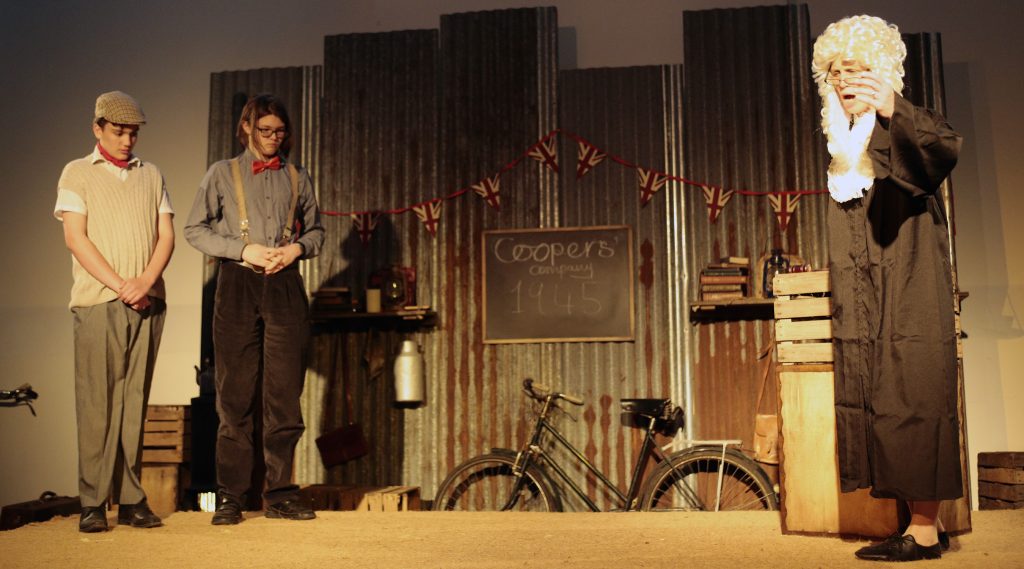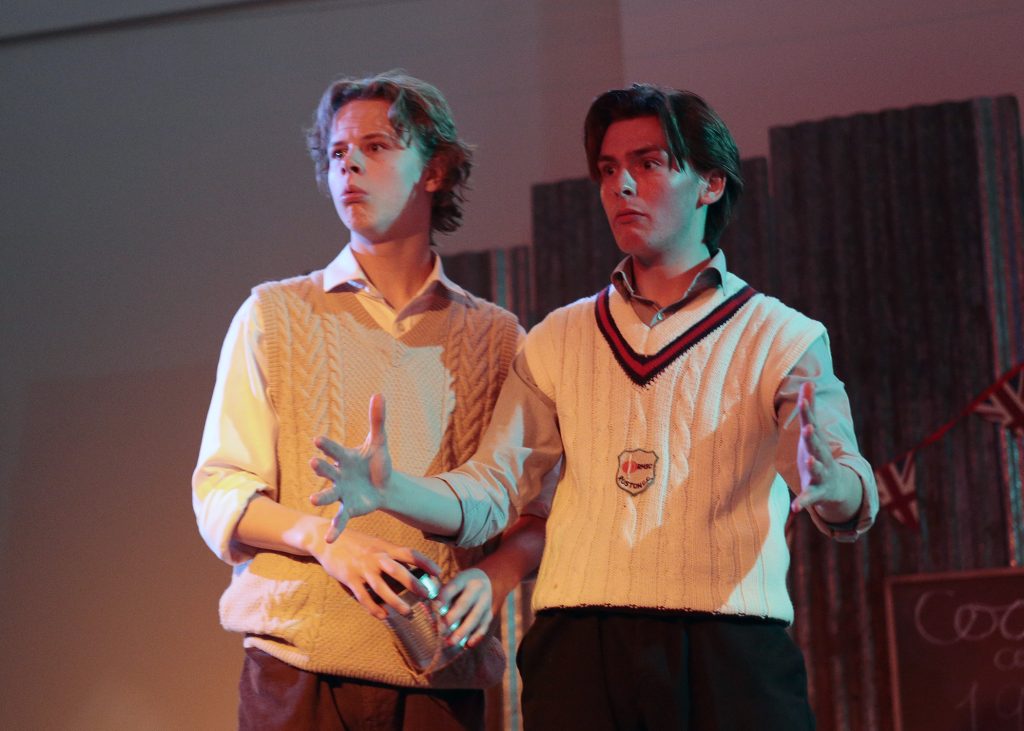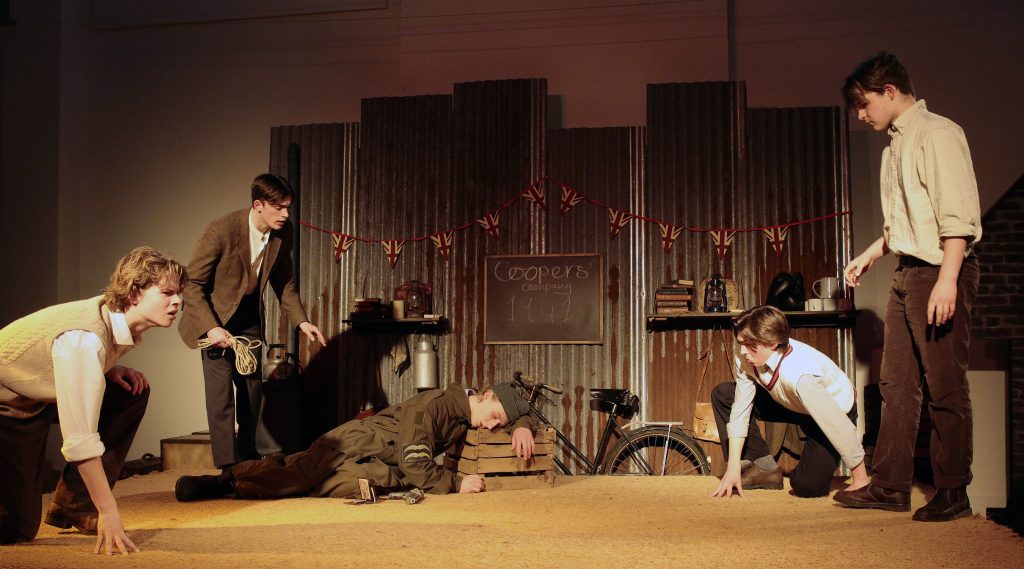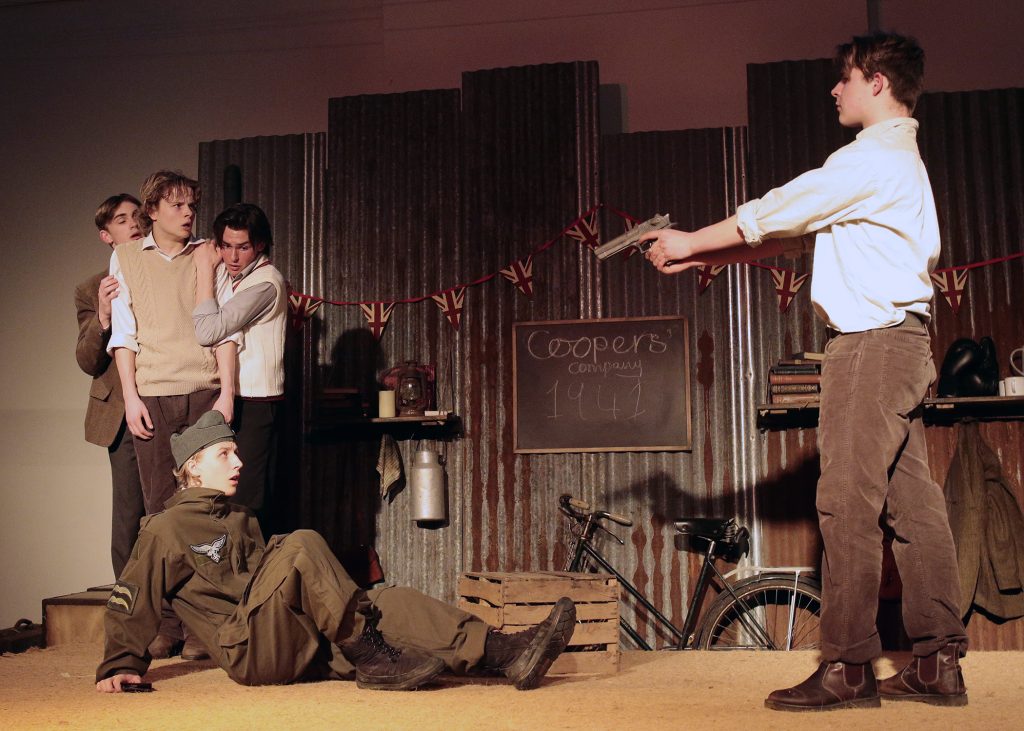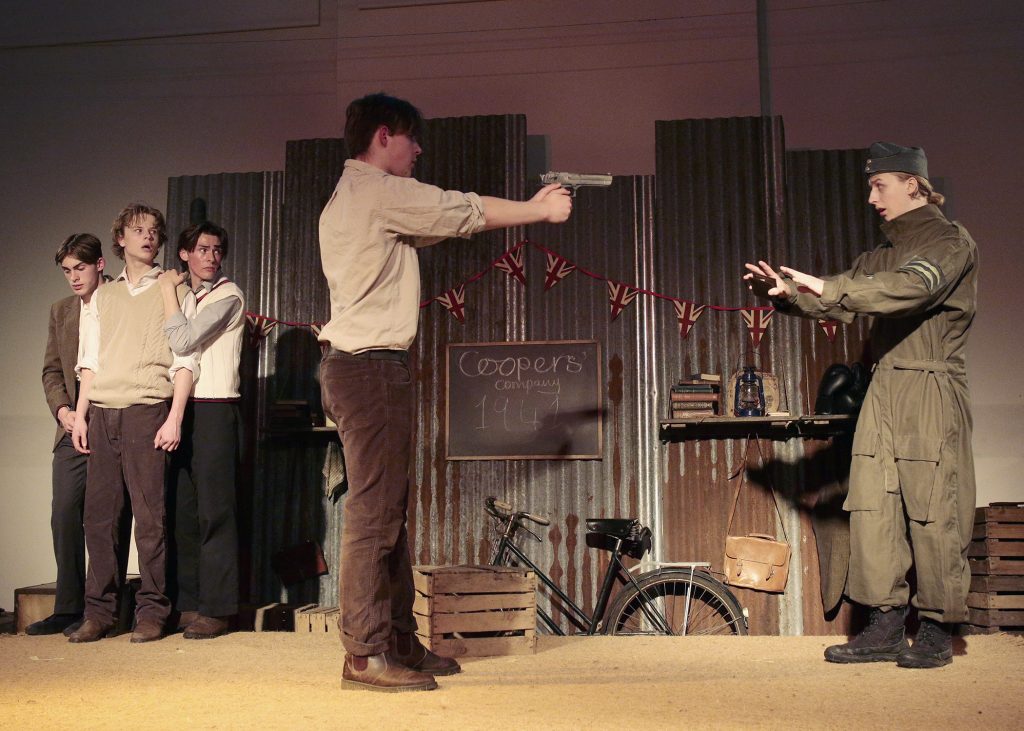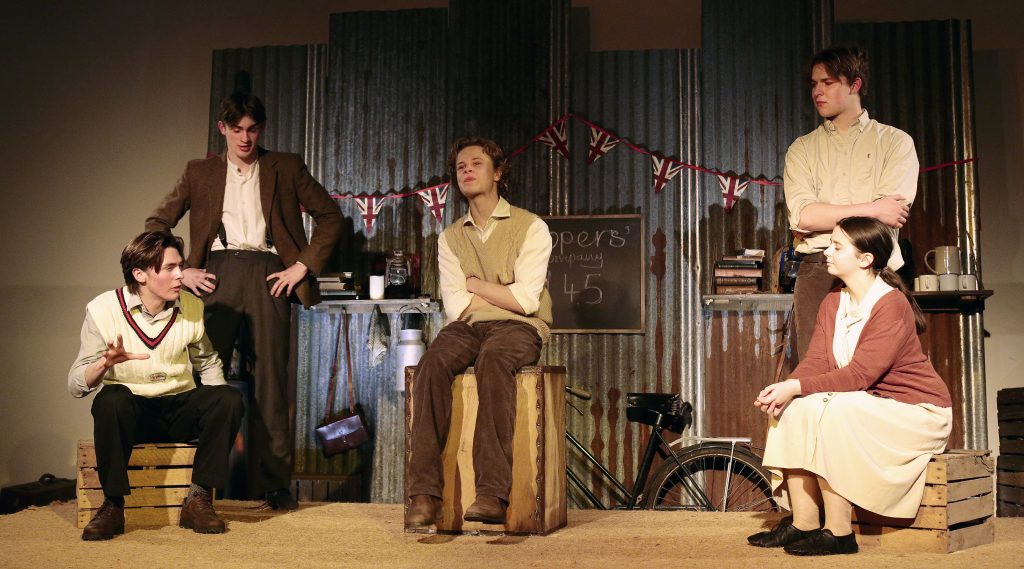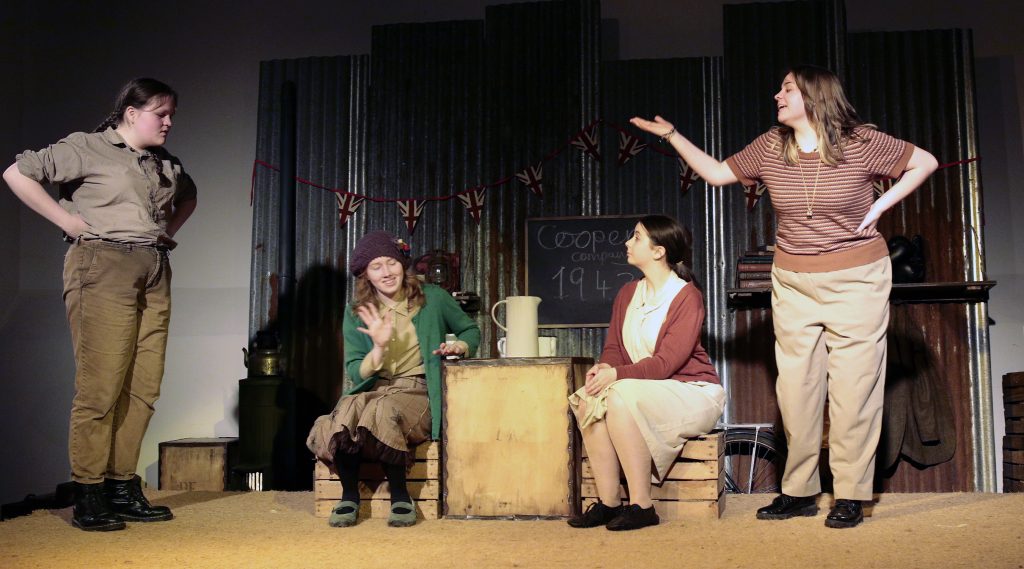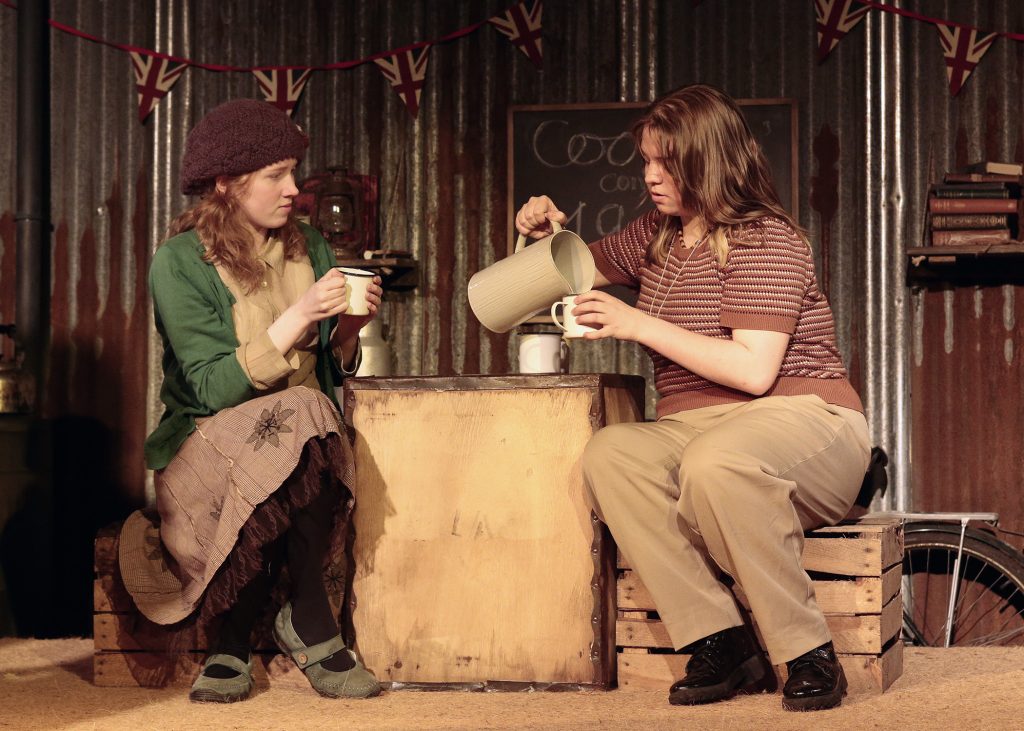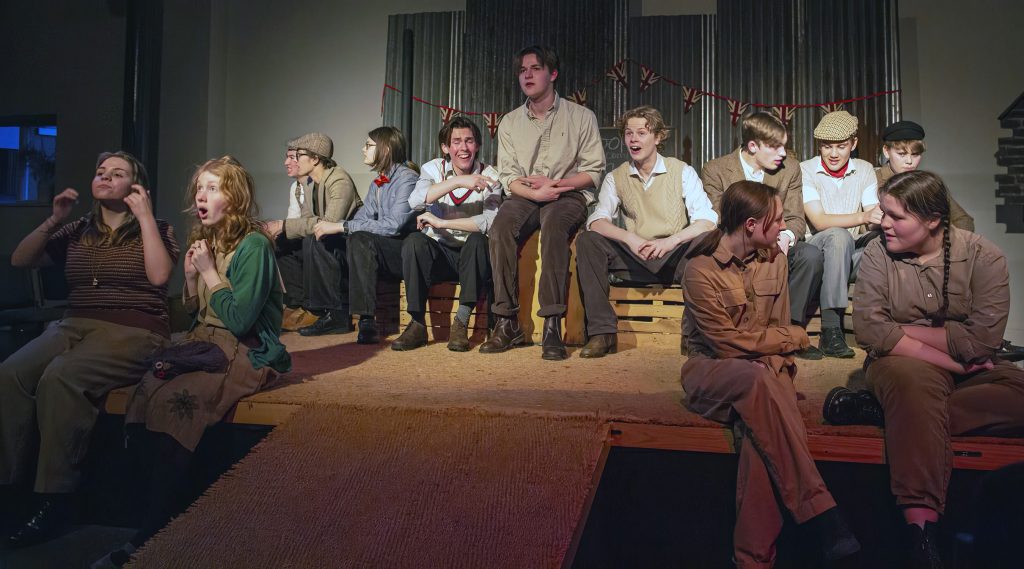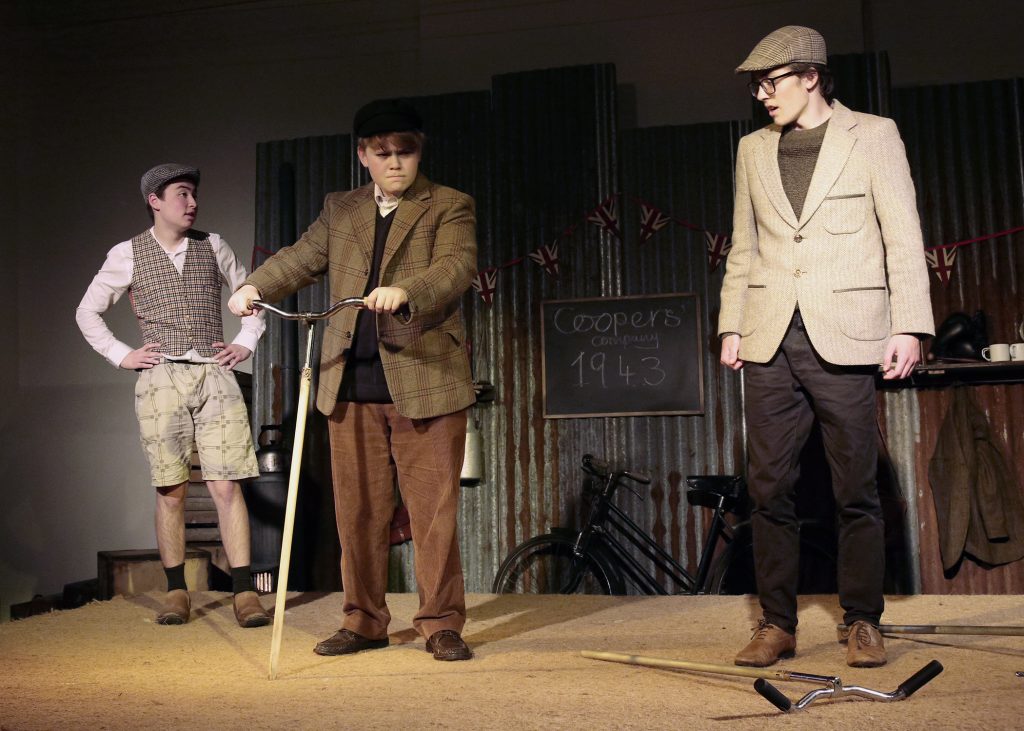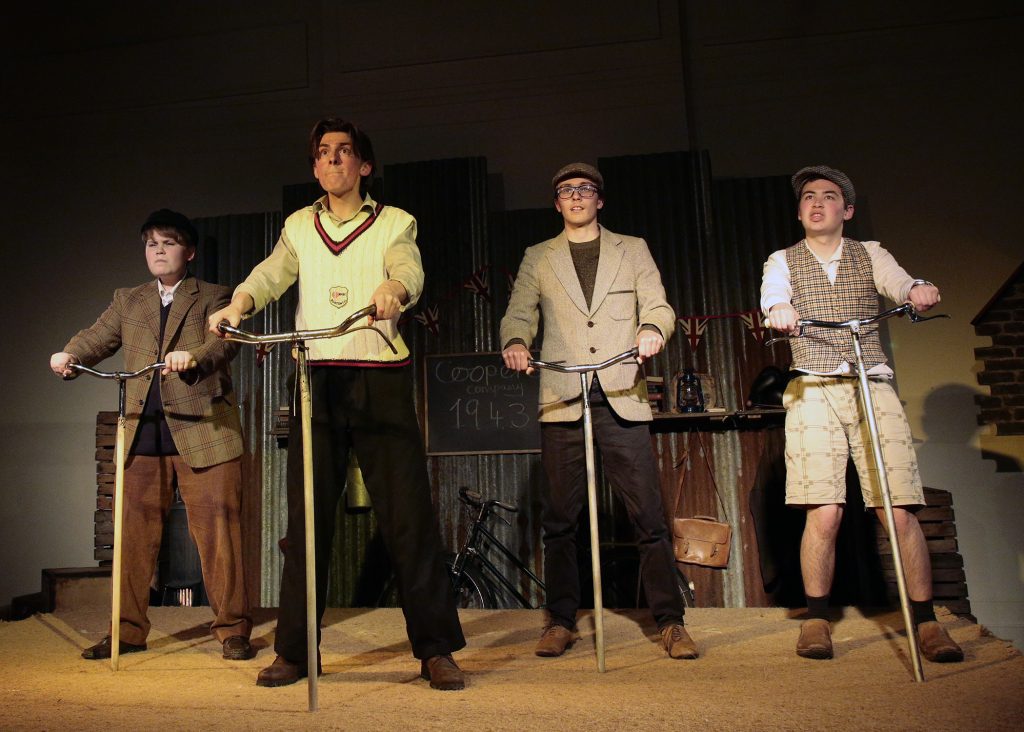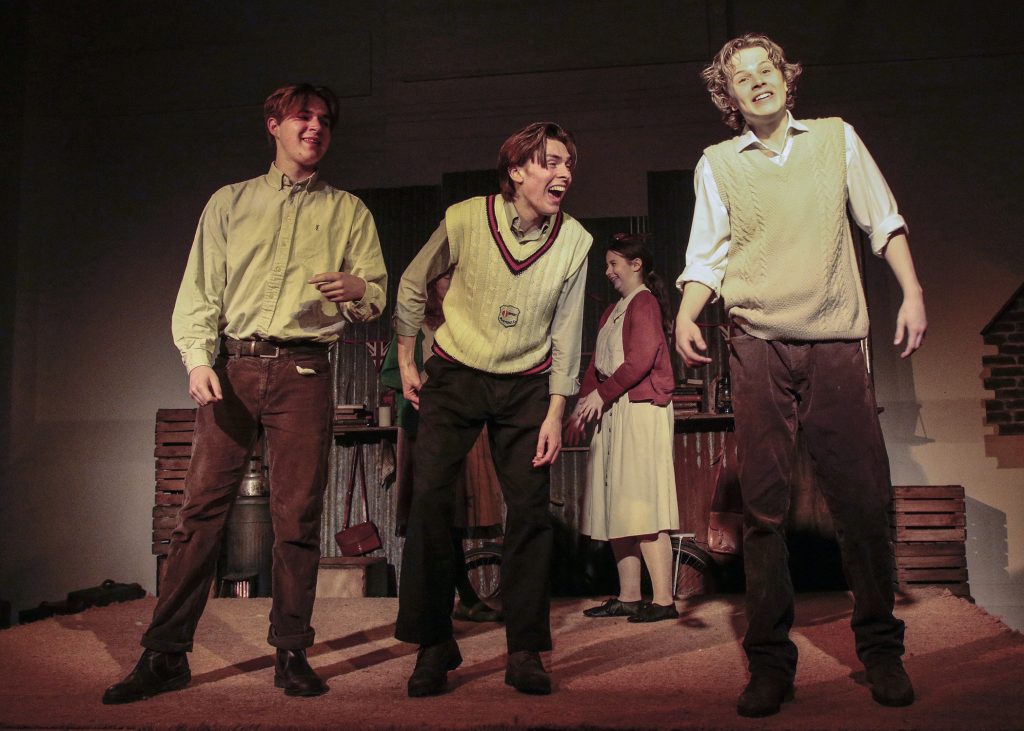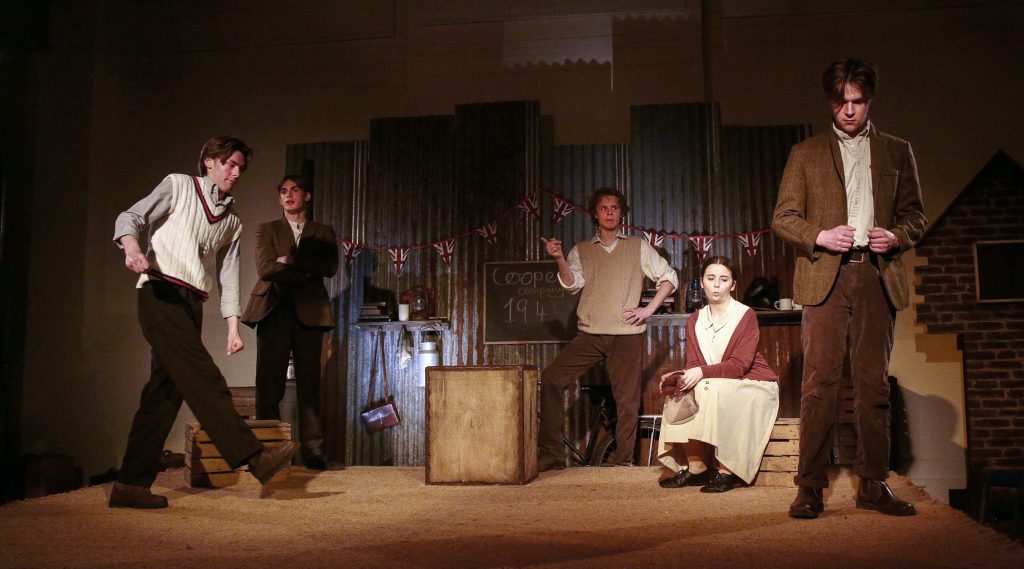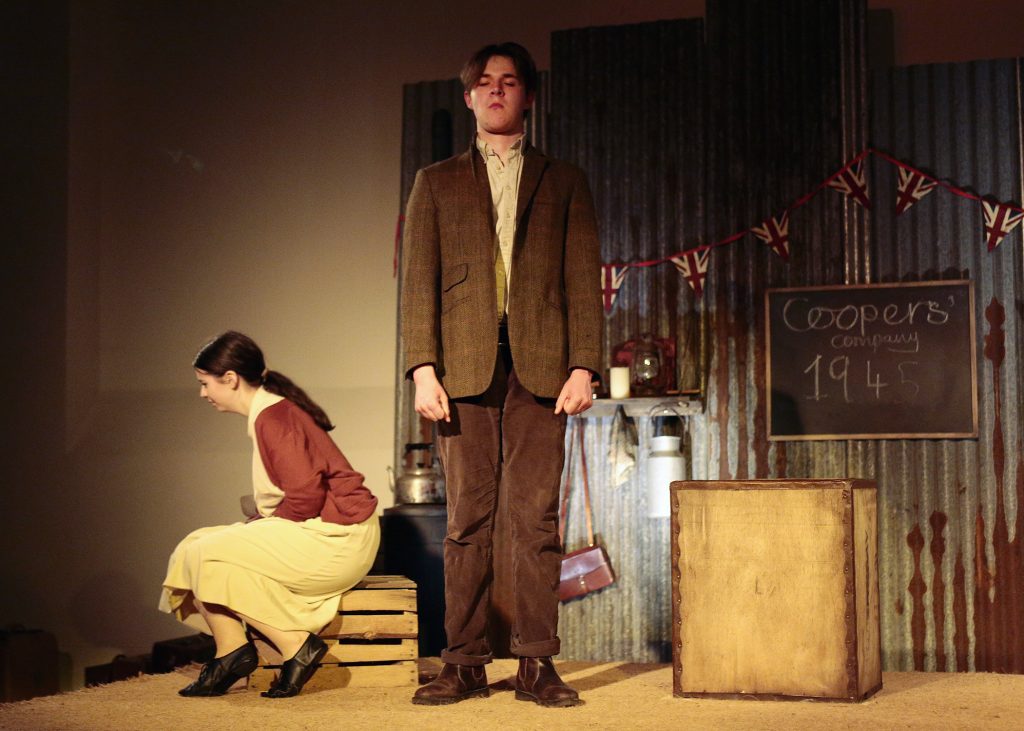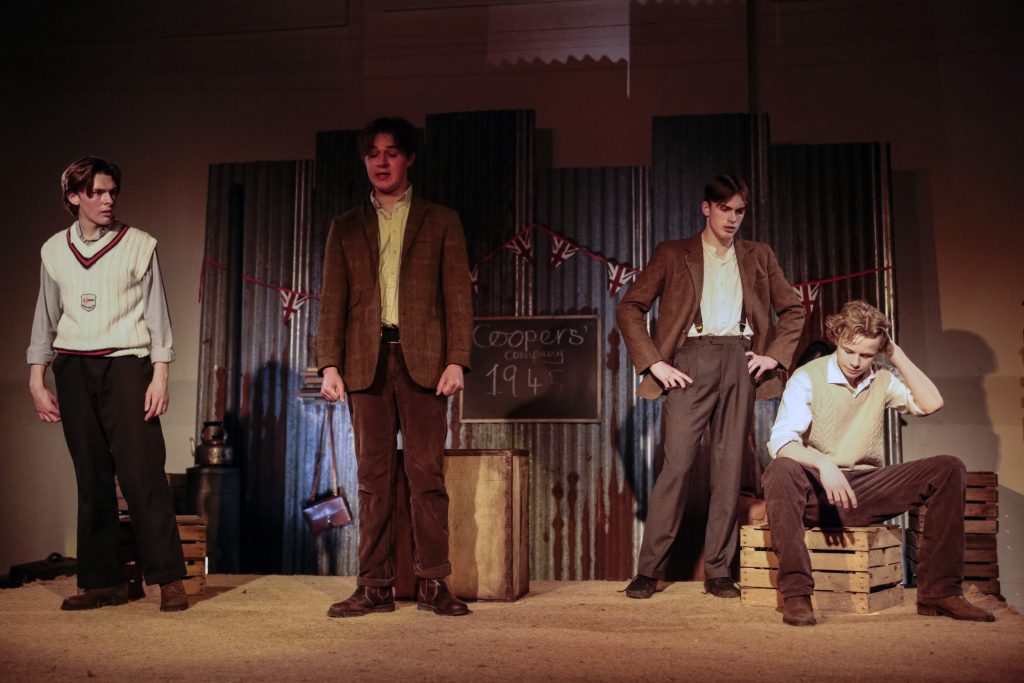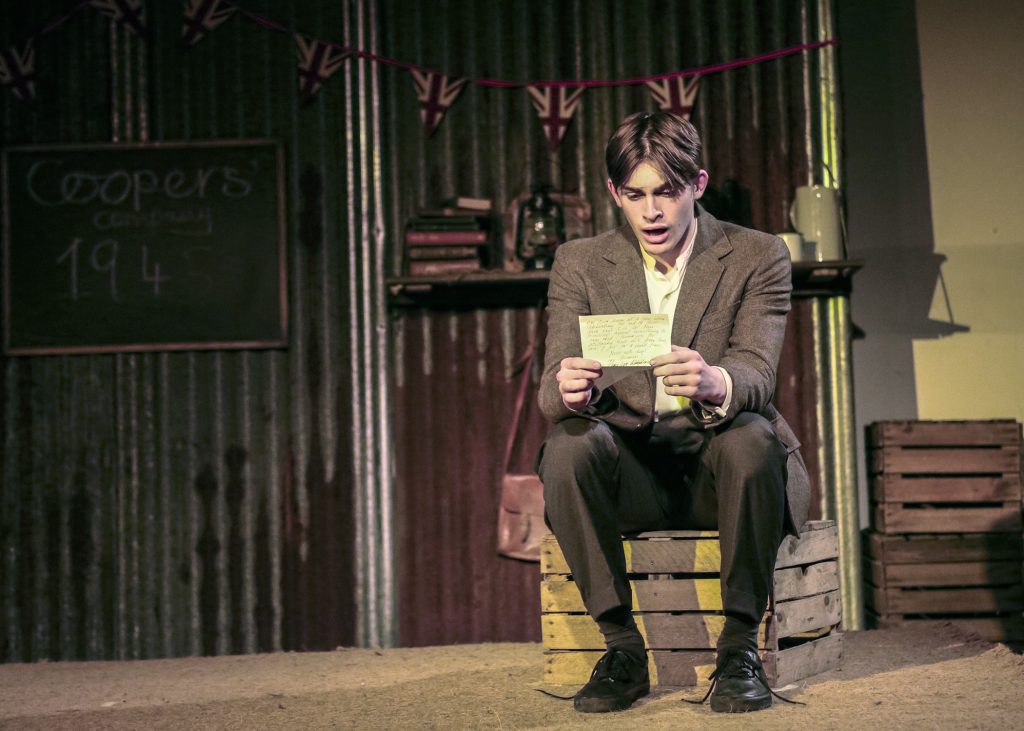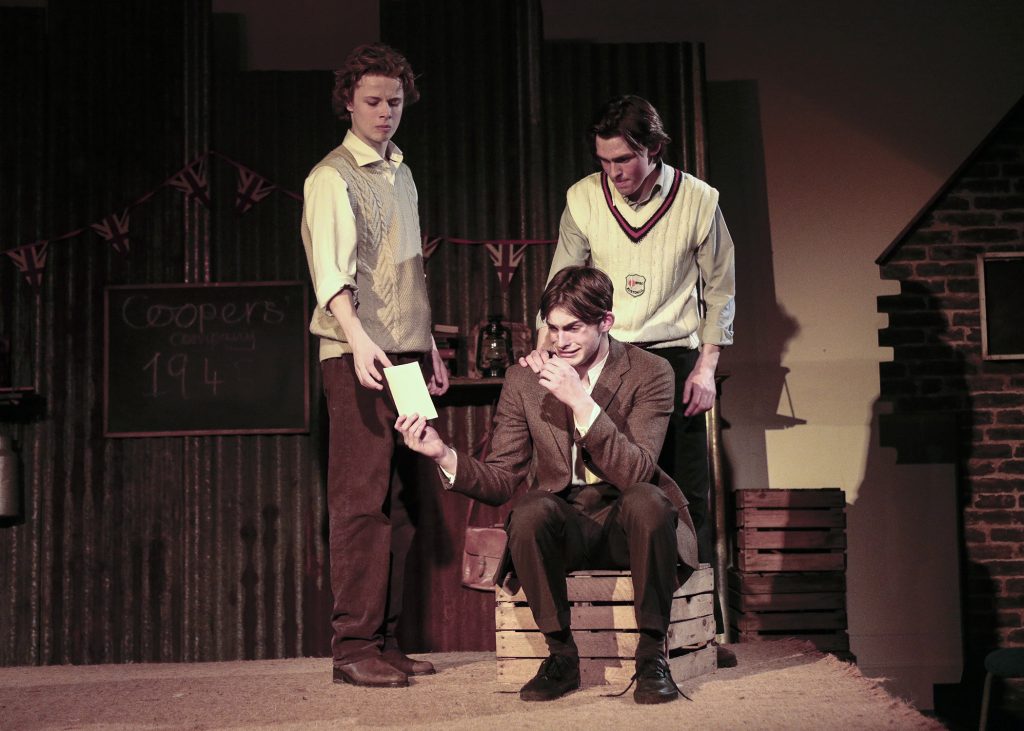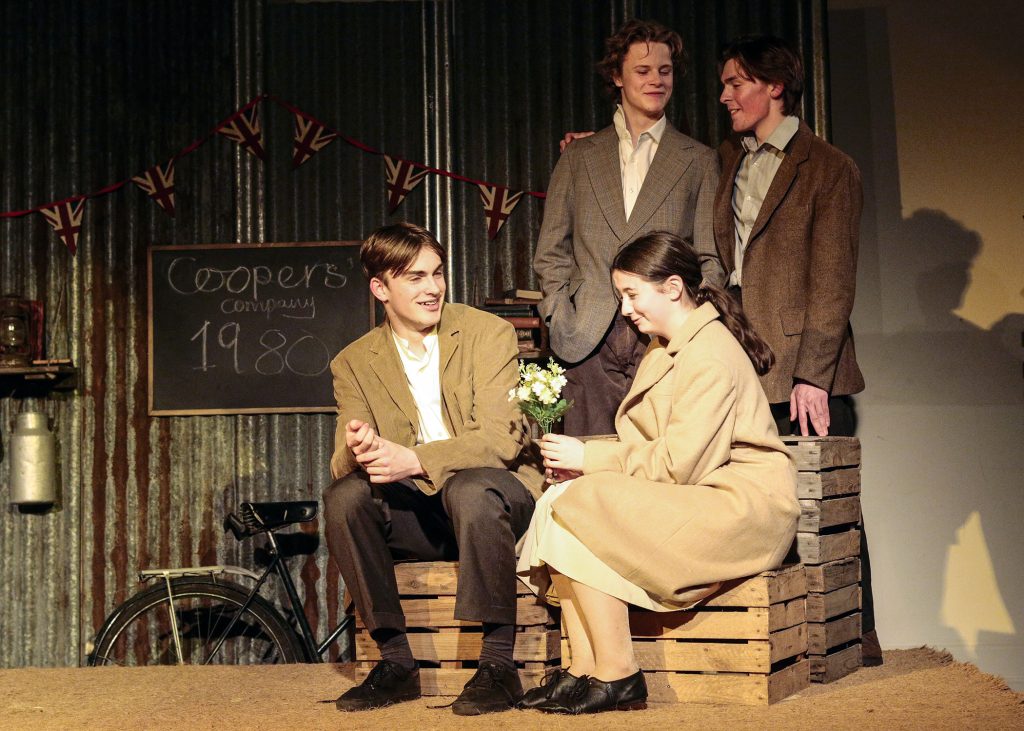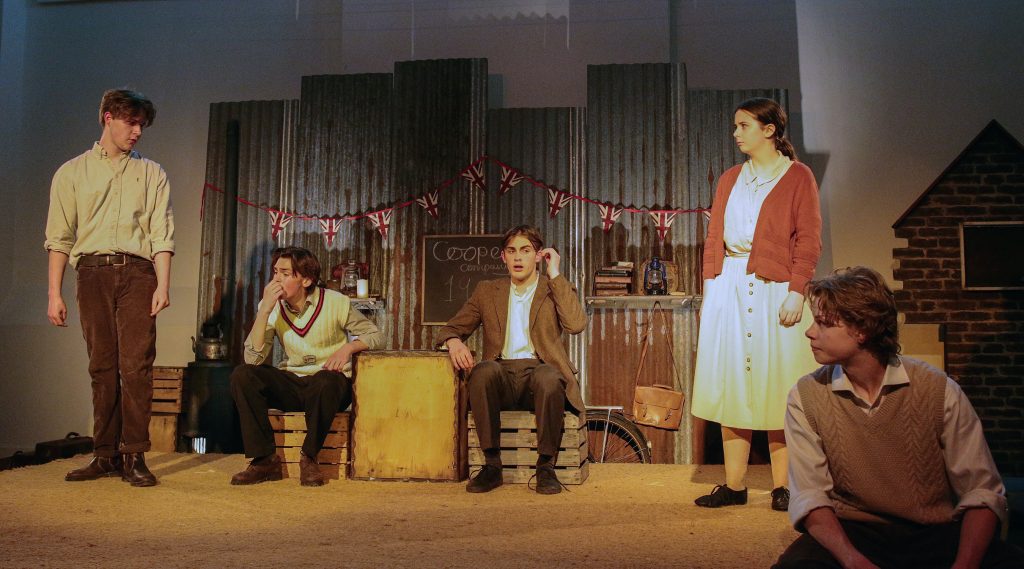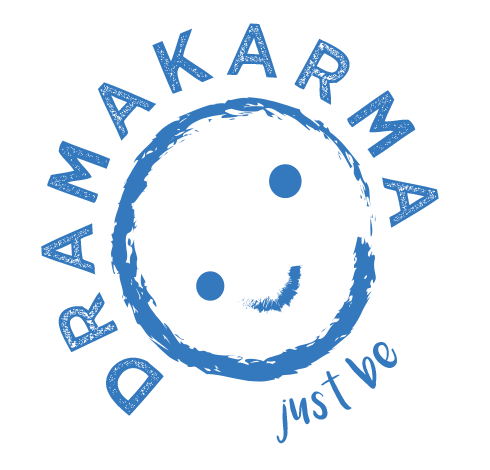TICKETS ON SALE NOW
6th & 7th October at The Merlin Theatre
Doors open 7.30pm for 8pm start
Concessions available. Suitable for ages 8+

BUILDING THE PROJECT
Foreword by David Lassman

It is a great honour to have been asked to write some words for this programme. Dramakarma are rapidly carving out a niche for themselves through turning historical research into performance and so bringing Frome’s history to whole new audiences.
In the case of their latest production, Two Thousand Days, the backdrop is the town during World War Two, with the cast mainly playing schoolchildren from Coopers’ Company’s School, evacuated here by Operation Pied Piper. This was the massive undertaking over the first weekend in September 1939, of moving 1.5 million children from areas at risk from enemy bombing to safer places, such as Frome.
The staff and boys of Coopers’ Company’s School, from London, were originally due to be evacuated to west Somerset, but through human error ended up in a small Wiltshire village expecting pregnant women and babies, not several hundred adolescent schoolboys.
After three weeks of trying to make the ‘best of it’, the school was moved to Frome, where they took over recently vacated Nissan Huts left by Frome Grammar School. Once here and settled, the school would, as the title suggests, stay for two thousand days.
Despite the less than perfect situation, the boys and staff nevertheless seemed to have fully integrated themselves into Frome life quite easily, which was no doubt helped by the welcoming nature accorded them by their hosts; one that would be long remembered after the war ended.
The school, in their turn, gave back to their hosts wherever they could, and according to newspaper reports this included several productions to which various townsfolk were invited free of charge. These seems to have been well received, but perhaps this is hardly surprising given that many were written by R.D. Wingfield, one of the evacuated schoolboys and future author of the Frost novels (later turned into a successful TV series starring David Jason), along with fellow schoolboys and future actors Monty Goldberg (who would later find fame as Lee Montague) and Norman Cranwell.
This baton of theatrical traditional has now been picked up by Dramakarma, who have taken many of the stories recounted in a book about the school’s experience in Frome – namely Coopers’ Company’s School in Frome 1939-1945 edited by George S. Perry – and adapted them into the production that is Two Thousand Days.
Although Coopers’ Company’s School returned to London after the war, many evacuated here never forgot how the people of Frome and surrounding villages had opened their arms to them, and regular post-war trips to revisit the town and rekindle friendships, along with the commemorative stone bench in St. John’s Churchyard, all bear testament to this lasting feeling of closeness moulded during the war.
The vast majority of those on both sides – evacuees and hosts – have now long passed on, but if all goes well, the guest of honour for the first performance of Two Thousand Days will be Richard Beer, a Coopers’ Company’s School evacuee who was twelve when he arrived in Frome, but now at 96 remains a link between past and present and the stories being told in this production.
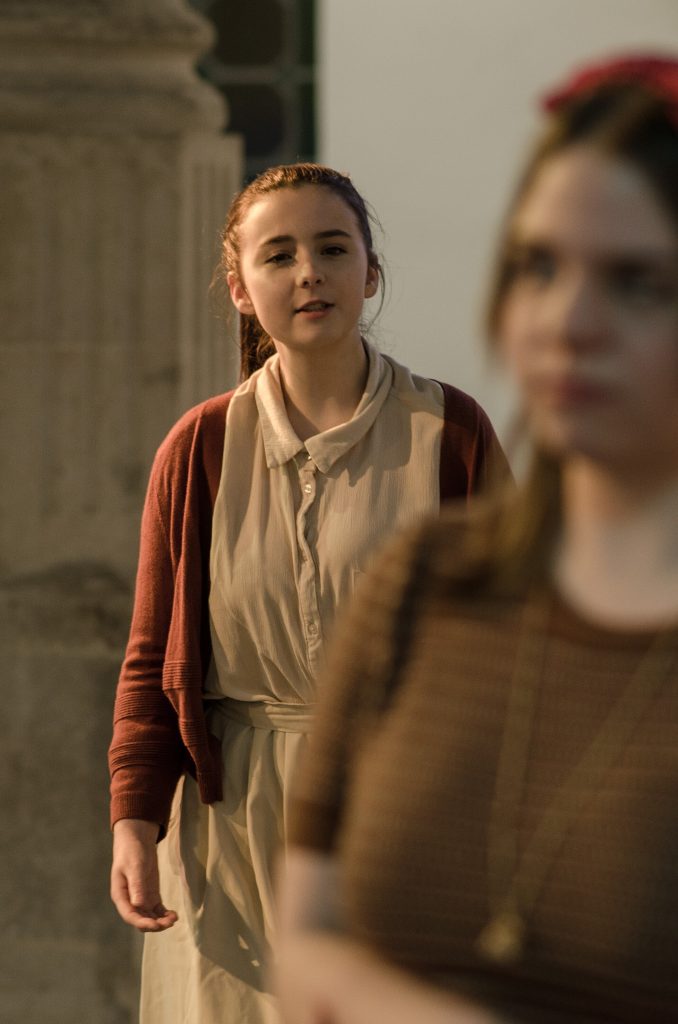
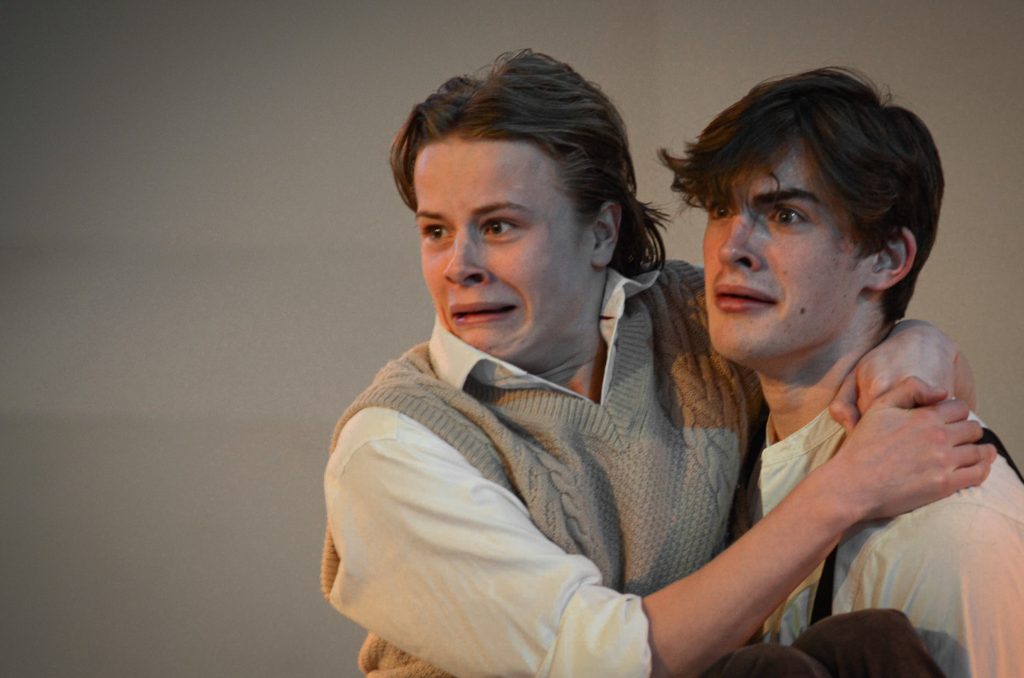
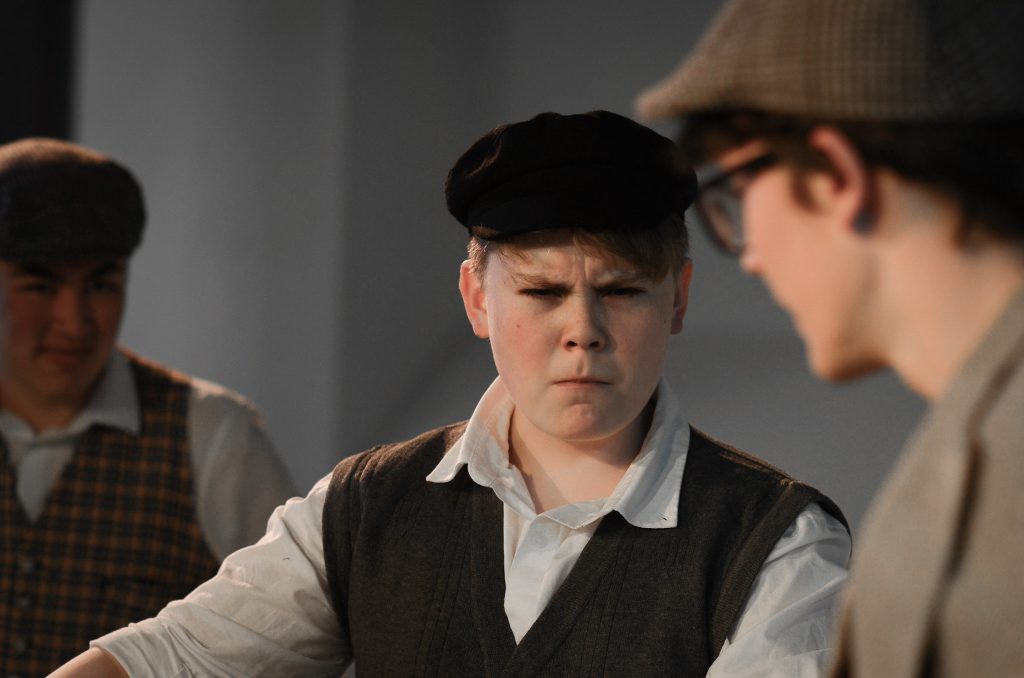
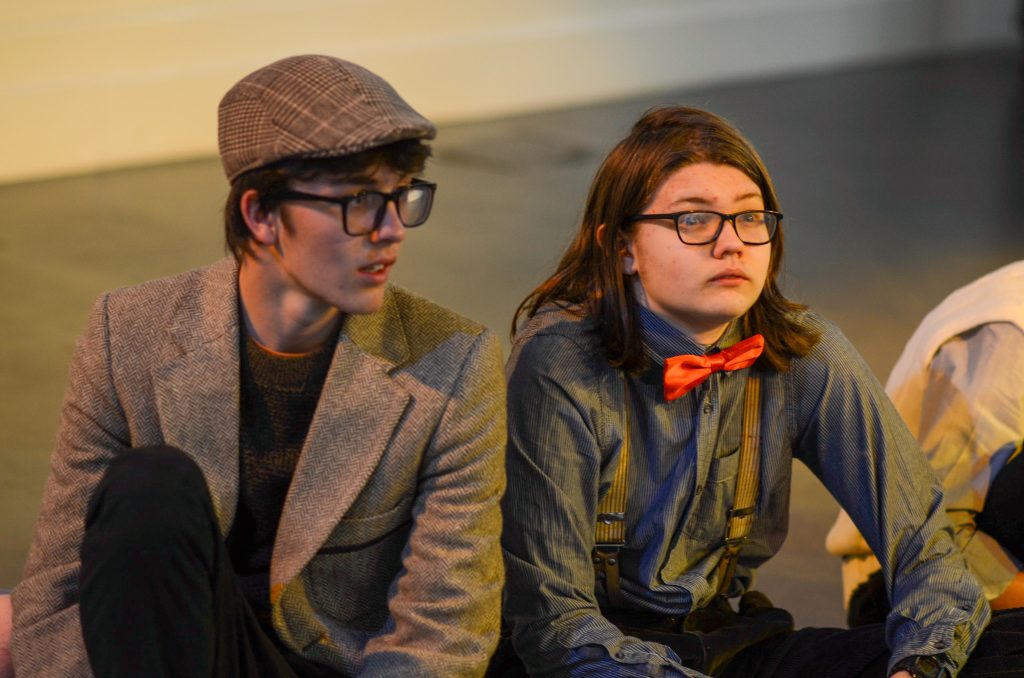


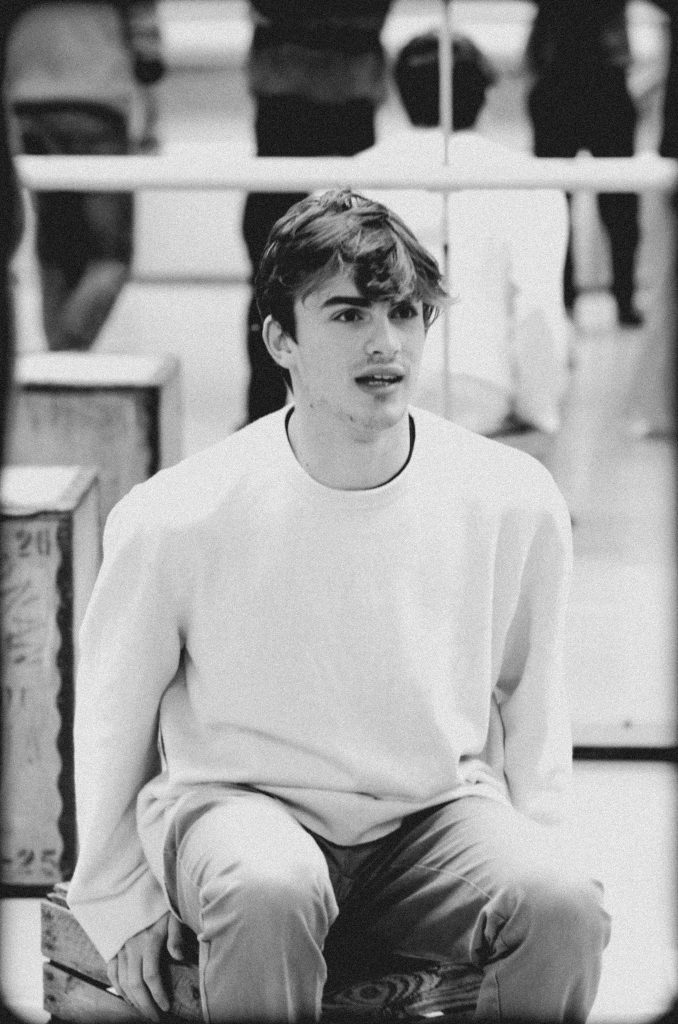
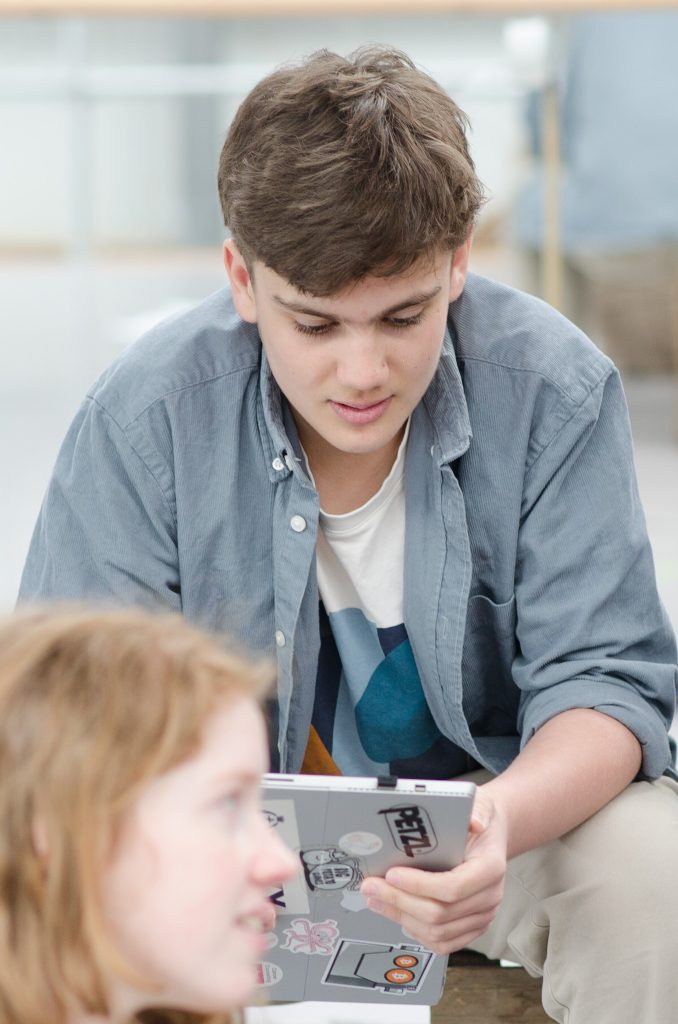
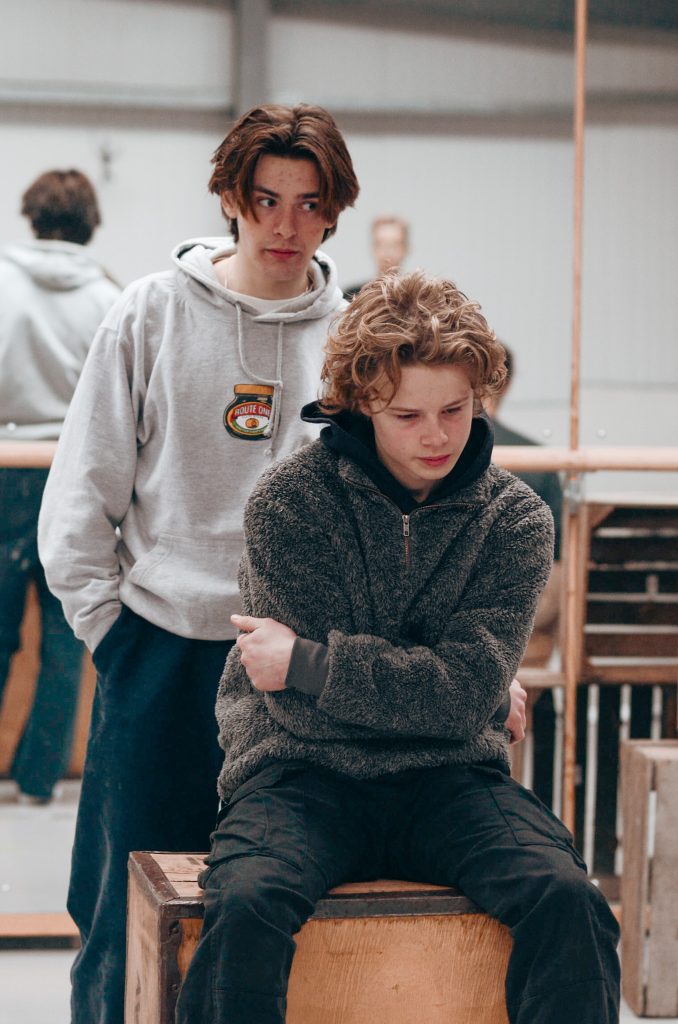
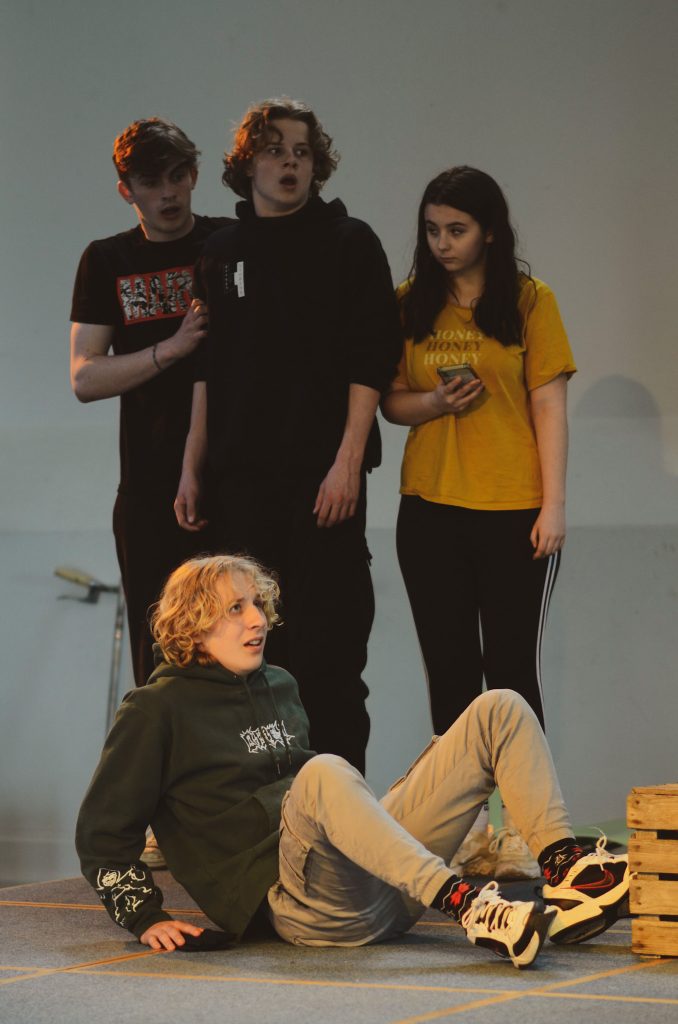


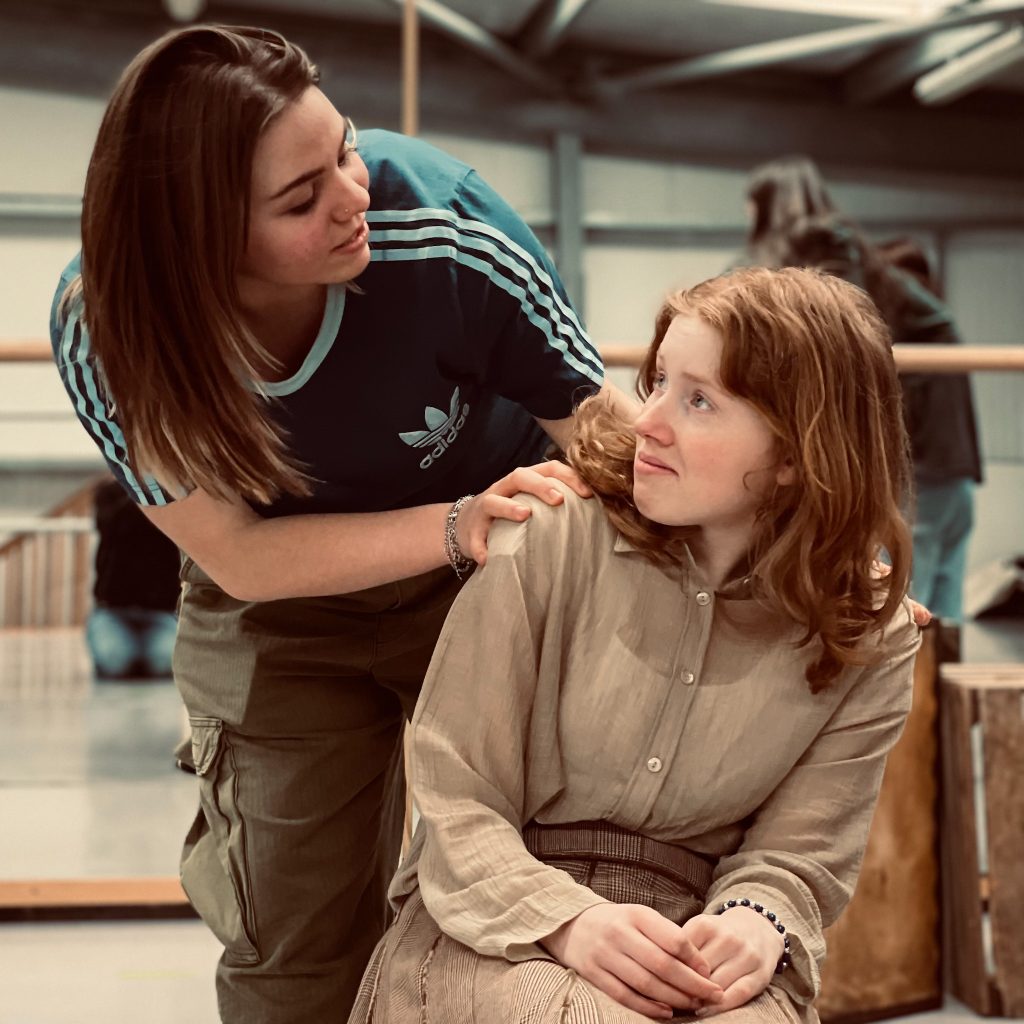
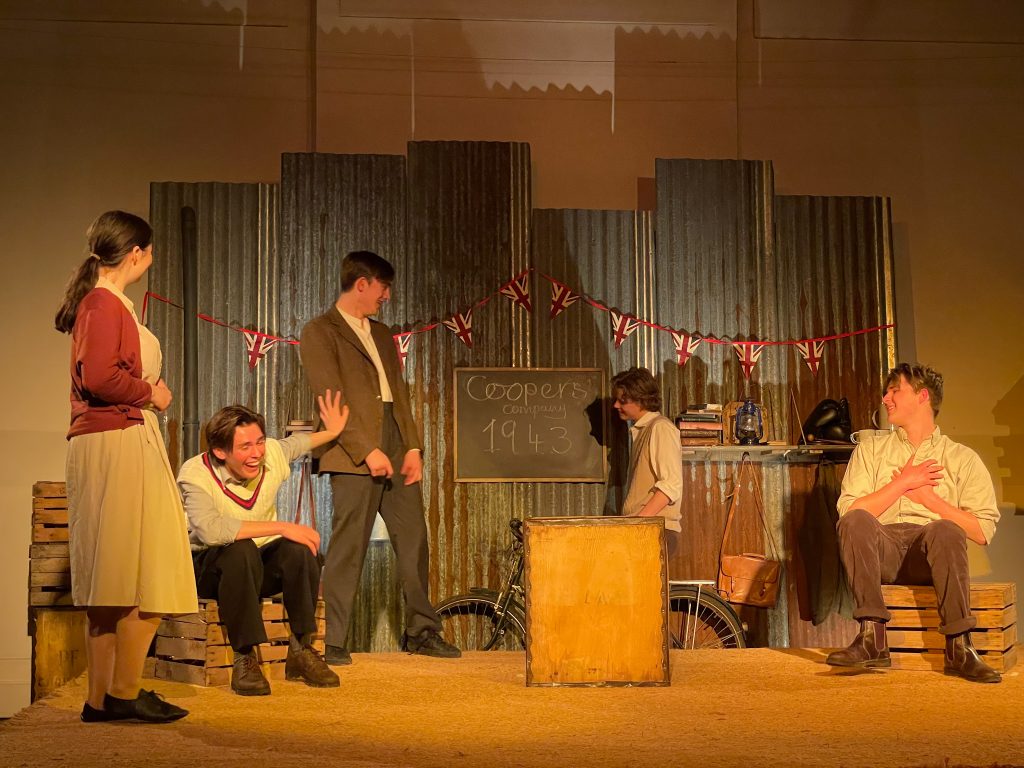
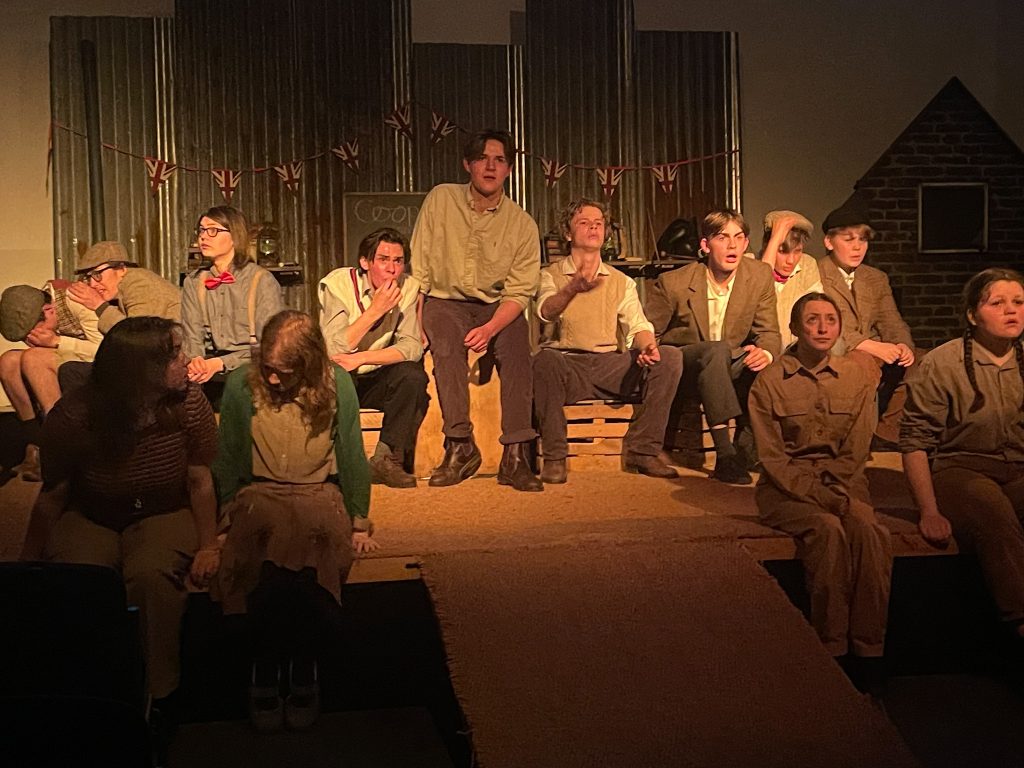
A little bit about Dramakarma
You may have come across us in our January production of The Last Matron. We have a particular interest in making community based projects, especially those with an historical slant.
We are a company dedicated to working collaboratively with young people, through improvisation, intrigue and problem solving. The student is at the heart of everything we do and we see it as our mission to help individuals to find their own voice. In the case of Two Thousand Days, we aimed to create characters who would showcase the individual concerned while providing a challenging experience for them.
Coopers’ Company book
The main source of our stories is a publication of memories edited by George Perry. We re-imagined this memory for our own purposes as part of the play. This is the original story, providing some indication of our working method.
DOWNLOAD THE COOPERS’ COMPANY BOOK‘I have been trying to place the year. I believe it was 1941. The time was just after 4.0 p.m. Tony Harding (1939-44) and I were cycling back our billet from the Art college near the park. We debated whether it was possible to come down Bath Street and around the bend into the Market Place without using our brakes. I managed it with about a foot of the kerb to spare. But standing on the pavement outside the Post Office was the local PC Plod who waved us down and charged us both with speeding. I argued with him about the speed he was charging us with going. Had he measured it etc.? I didn’t think we were doing more than 25 mph, but he insisted it was 30 mph. What made matters worse was Mr White was lurking in the vicinity and considered that compounded my offence by not showing proper respect and deference to an officer of the law. I do not remember much about my court appearance except I received a dressing down from a pompous Magistrate ranting on about the evils of speed, smoking, sex and anything else he could think of at the time.’
Building the 2000 Days project
After our production of the Last Matron we wanted to make a contribution to Frome’s Local History Festival, and in particular, working with young people to create the piece. Last year the book, ‘The Coopers’ Company’s School in Frome 1939-45’, became available as a digital resource, making research and sharing of ideas around the stories a lot easier. Using the resource, we decided to create a dramatic piece with a cast of 13-18 year olds. Beau Street, one of our cast members, was at this time about to embark on work experience. He felt that the story should focus mainly on the positive aspects of being evacuated to the countryside and that cycling should be a recurrent theme. Having your own wheels seemed to us a great expression of the freedom young people experienced having been released from their parent’s care and the immediate dangers of the war in London. We were reminded of the film ‘Stand By Me’ and with this connection in mind, ours became a coming of age story.
We identified the key characters and stories both from within our Coopers’ book and from other literature and online resources. We picked out five main characters to tell the story. Although all of the characters and the stories in the play are based on real evacuees who came to Frome, they have been embellished for dramatic purposes and for this reason we changed all of their names. The young people largely chose names of older family members to help them to connect with their character. We knew from the start which character would have to be the main focus of this. It was then a question of finding a way to tell the climatic section of the play in the most sensitive way while being true to the stories, our characters and the context. We do hope you will enjoy the play and that we will have done some honour to the children who were evacuated to a Frome in the war years. This is our tribute.
Richard Beer. Extracts from a conversation with a Coopers’ evacuee.
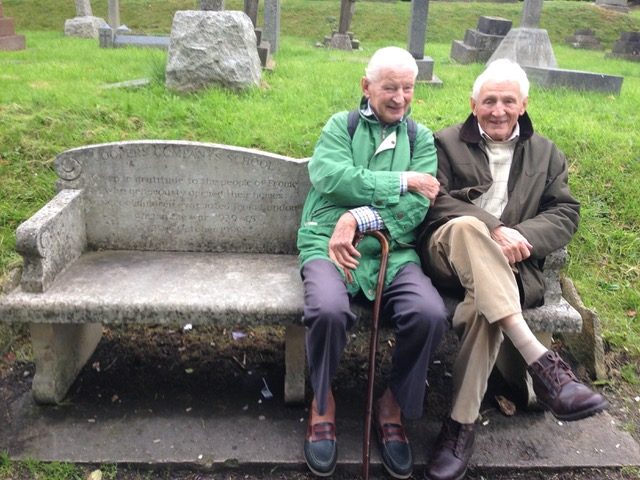
On the Tuesday night of our performance, Richard Beer, a former pupil of Coopers’ Company, attended the play, with his sister Joyce and family. We were honoured that they were there. An extract from the telephone conversation about Richard’s time in Frome can be found by clicking the button below.
READ INTERVIEW WITH RICHARD BEERDavid’s Poem (Unabridged)
We cycle through these country lanes,
Rapid as hare and elegant as cranes.
Stealing our way past valleys and vales,
Unnoticed in a land of stories and tales.
Muddied boots, wind in hair.
Flying through this world without a care,
A hushed haven, unstirred by war,
Seeping with adventure so much to explore.
We meet bike-less strangers, bored to the bone,
Cycle through fields of bullocks towards, lands unknown.
Scraps of metal, leather, rubber and more,
Crafting a bike for our bike-less friend,
till he is bike-less no more.
Forging imperishable bonds hour by hour,
Finding joy and triumph in a world gone sour.
We show love and care, through chivalrous courtesy,
Denying it through our teeth as we don’t want her to see,
How we truly feel, we put on a fake visage,
Shrouding our emotions in a fools game of espionage.
Dancing a Waltz with lustful intention,
A love felt so strong, but neither of the pair inclined to mention.
We are not brothers by blood but brothers by a bond,
Forged through time we begin to grow fond,
Best friends for life, till death do us part,
A brotherly love, truly felt from heart to heart.
We have cried through sorrows, laughed through Joys,
Fallen in love with girls, and had good times with boys.
While magpies fly over cawing with delight,
This town, this home, will always stay,
A beacon, an ember, forever burning in the night.
By Beau Street
Tribute to Gordon Laye
Although all of our cast members are based on real people that came to Frome, there is one in particular that we would like to pay tribute to. Gordon Laye, who attended Coopers’ Company from 1940-1945. Please download a copy of the book to find out more details. Below is what is inscribed on his memorial at Hanover War Cemetery in Germany.
In Memory of
Marine Gordon Laye
No.45 R.M. Commando, Royal Marines
Who died aged 18 on Thursday, 12th April. 1945
Remembered with honor
Hanover War Cemetary, Germany
CAST

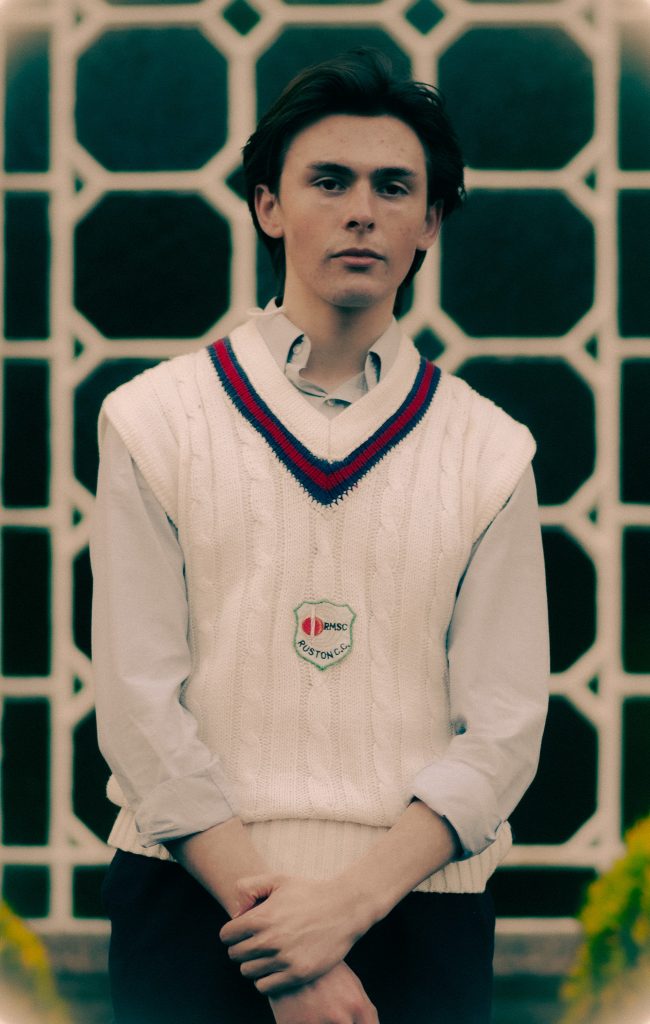
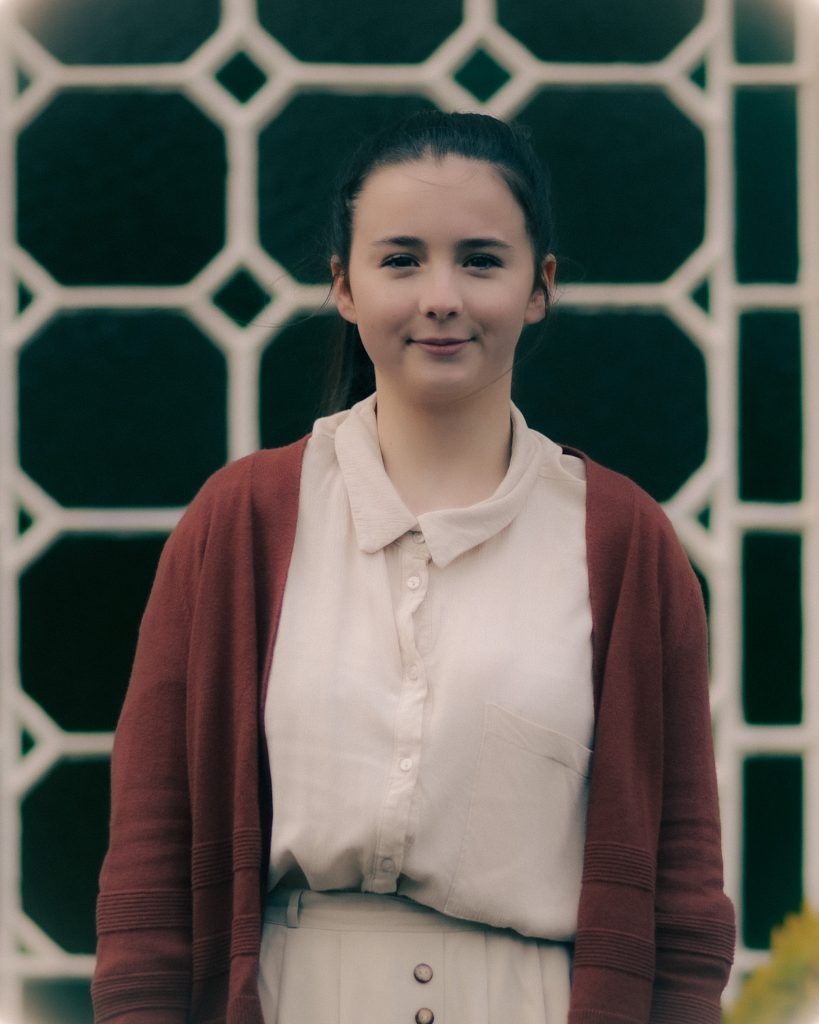
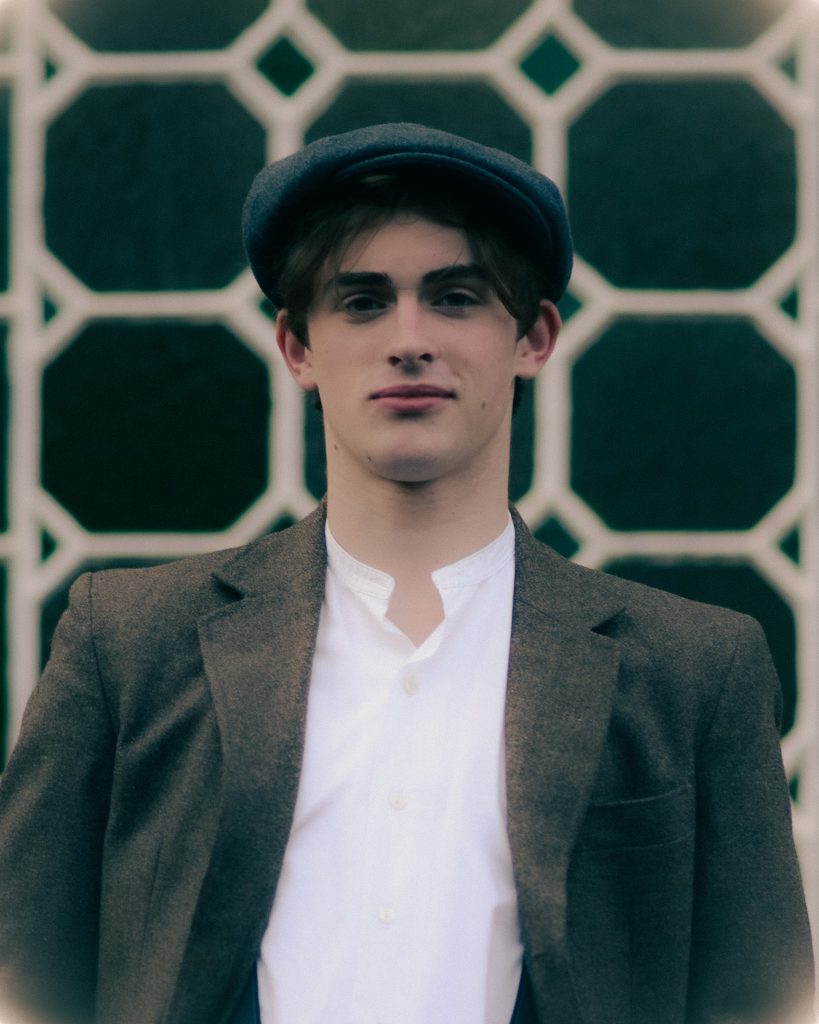

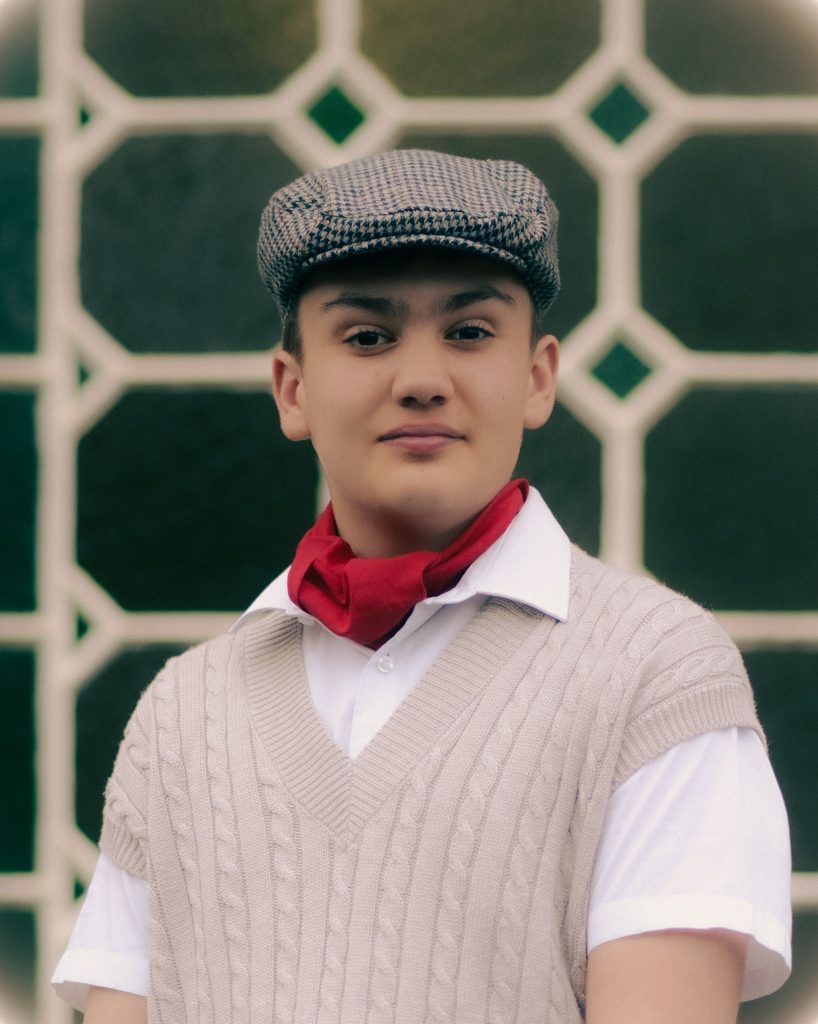

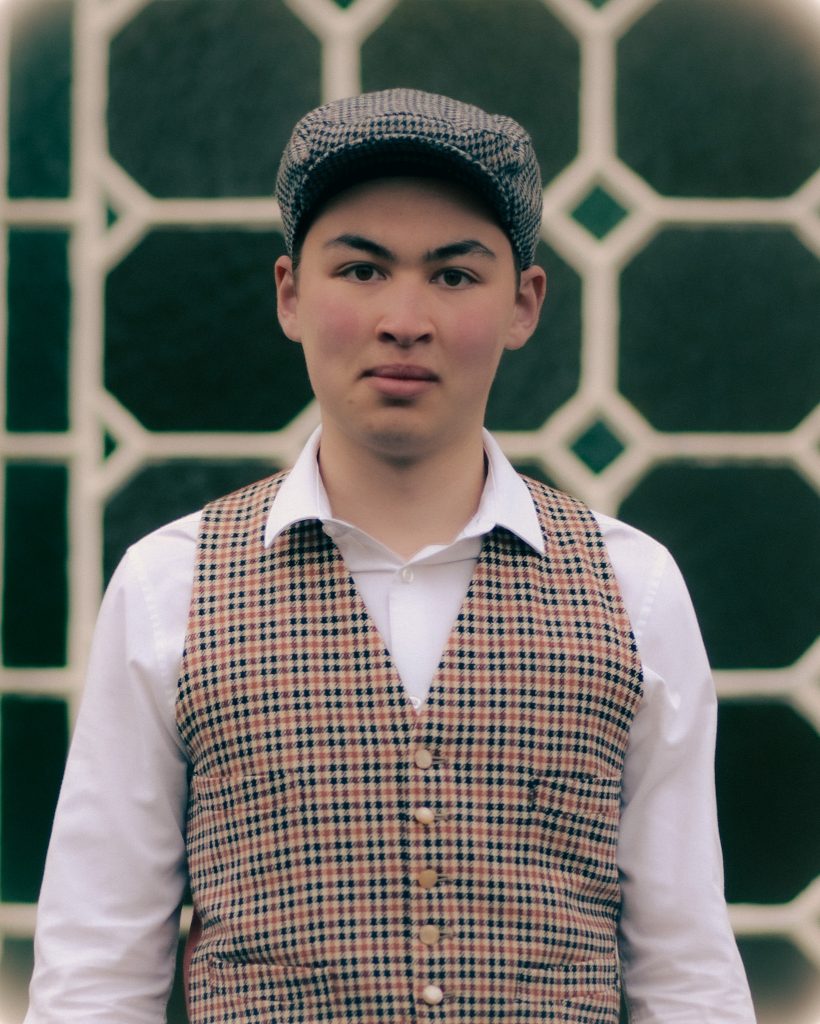
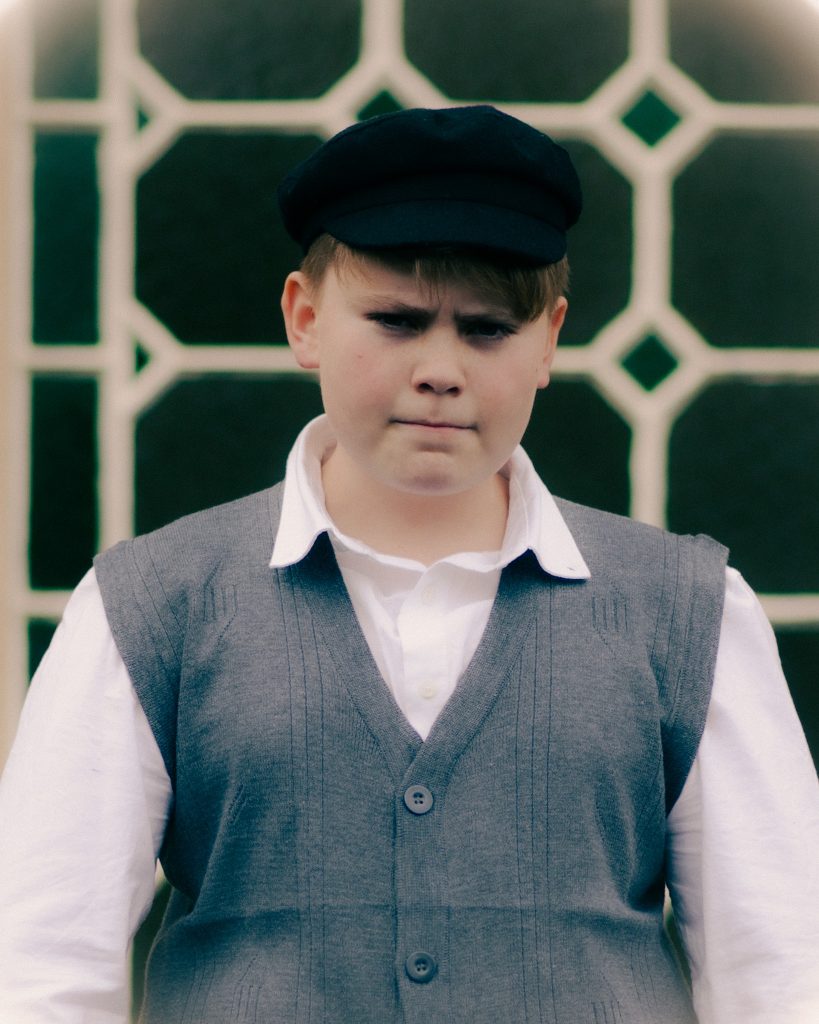
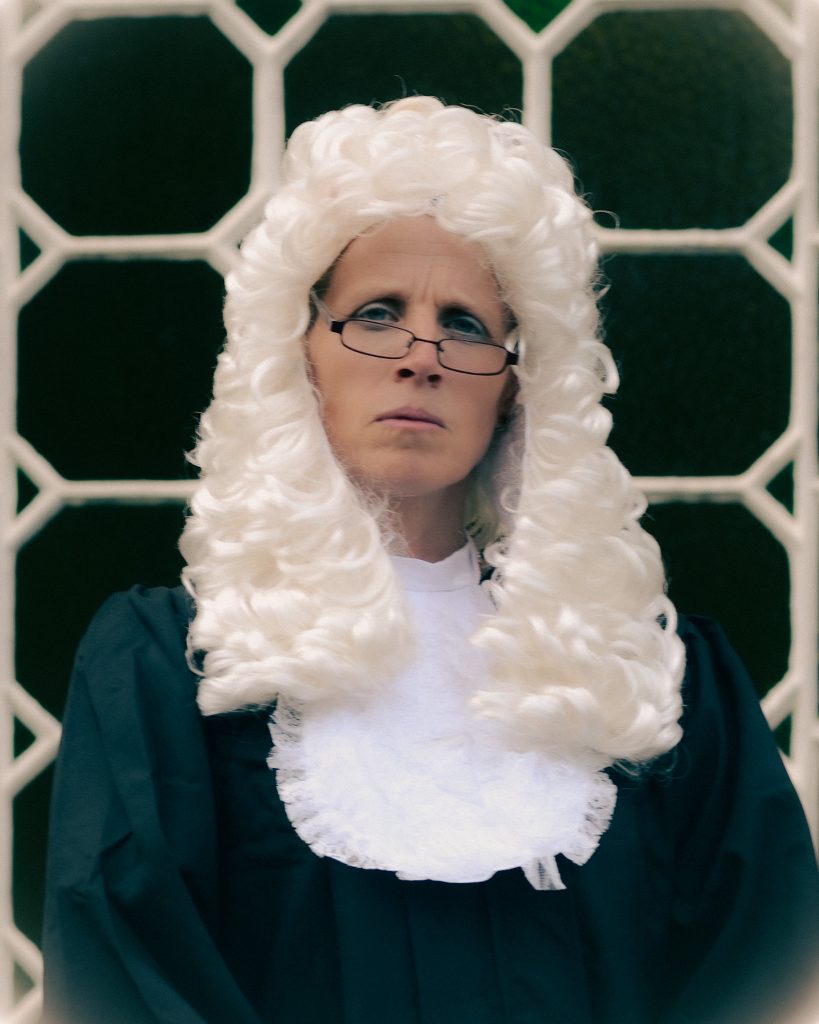


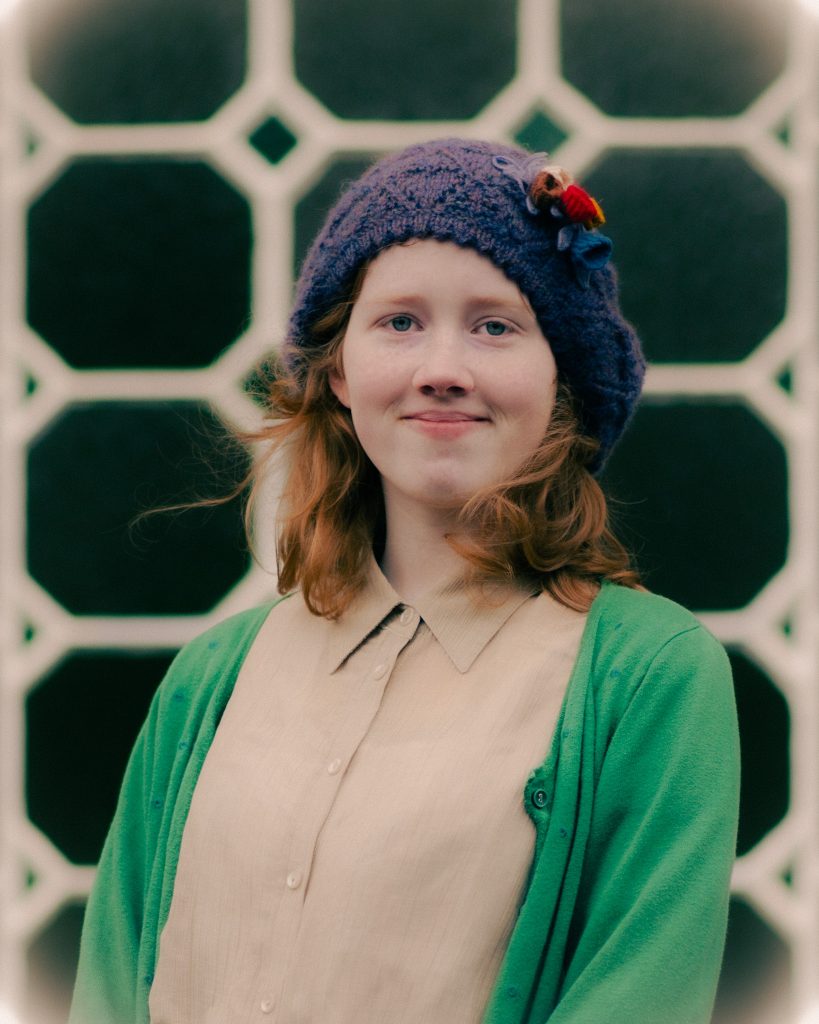
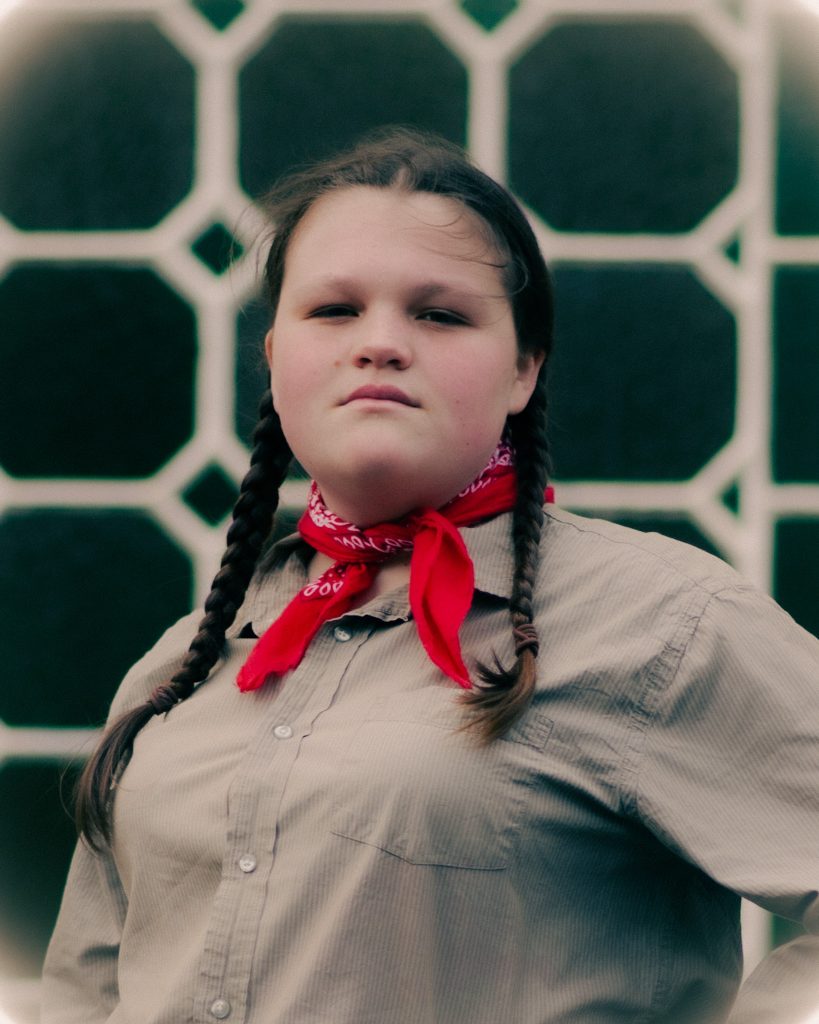

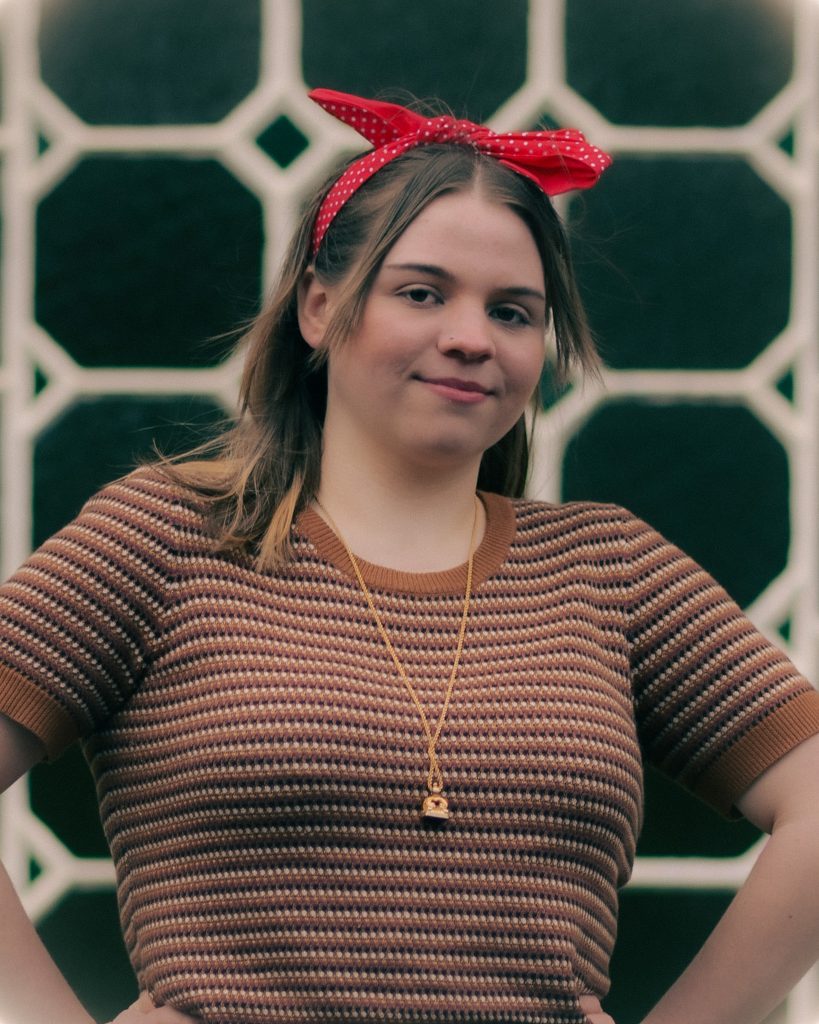

Backstage Crew
Writer: Kevin Ross.
Co-writer: Chloe George.
Director: Kevin Ross and Chloe George.
Production: Kevin Ross and Chloe George.
Light and sound technician: Will Angelero.
Light and sound design : Chloe George and Mike Witt.
Prop creation: Chloe George.
Props: Chloe George.
Costume: Kevin Ross with help from the Merlin Theatre.
Set design and build: Chloe George and Joel Sudworth.
Research: Beau Street, Chloe George, Kevin Ross and Jayne Sadgrove.
Photography: Kenny Street.
Poem: Beau Street.
Programme design: Chloe George.
Stage crew and set: Ola Moon.
Wigs: Vicki Ross.
Special thanks to David Lassman and Keyford History Society for support, encouragement and advice with the project.
Filming: Richard Harris and Paul Farrant of ENTEL.
Thanks
Thanks to Sara Godfrey and Rook Lane for hosting the event.
Thank you Tracey West, Emma Lacey-Williams and Paul Vincent for lending or donating their bikes. We named them after their previous owners – Valerie, Bill and Wendy.
Thanks to Frome Society for Local Study for financial assistance (in the form of a grant) that will allow an online resource, accessible to all, to be created from this production.
Thanks to the Frome Museum and David Lassman for allowing us use of their space for rehearsal and the loan of props.
Other References
Evacuation: The Children’s War (Ruth Inglis), Frome at War 1939-1945 (David Lassman), No Time to Say Goodbye (Ben Wicks), When the Children Came Home: Stories of Wartime (Julie Summers)
